Sundance 2017 has come to an end, but with a bang, not a whimper. At the Saturday night awards, films that took on politics and feminism came out on top. And before that, a gathering of women to discuss the path forward turned into a heated discussion about intersectional feminism and race.
Thanks for joining the Los Angeles Times team of intrepid critics and reporters as they navigated art, politics and parties. We Hang out with filmmakers, marched with Chelsea Handler and watched next yearâs big films (and festival flops) emerge. See you next year!
- Mike White and Miguel Arteta serve up Trump-era allegory in âBeatriz at Dinnerâ
- âCrown Heightsâ tells the true story of long fight to free a man jailed for a crime he didnât commit
- VIDEO: Oscar noms | Diplo | OâShea Jackson | Chelsea Handler | Womenâs march | âStepâ performers
- PHOTOS: Portraits @ L.A. Times photo studio | Instant prints | Scene in Park City
Celebration of women filmmakers triggers heated debate among Salma Hayek, Jessica Williams and Shirley MacLaine
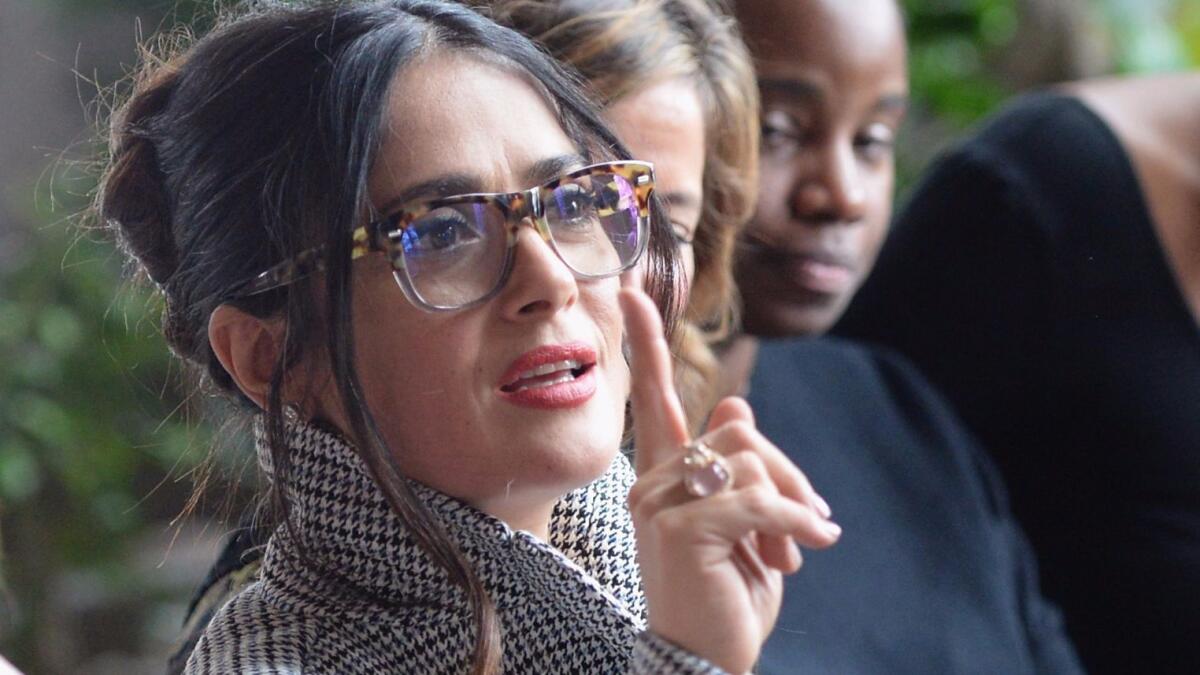
âIs your coat wool?â Alfre Woodard asked as she sat at a long, flower-filled table draped with purple paisley Italian linen. âIâm allergic to wool. I can never wear anything nice.â
Under the cavernous, vaulted ceiling of a mountain mansion, where the driveway was heated, an indoor stream trickled and a string of faux llamas stood guard on the stone staircase, Woodard sipped a spoonful of vegan cream of vegetable soup served by celebrity chef Cat Cora. Nearby, Marti Noxon, one of the creators of the Lifetime series âUnreal,â talked about her feature film debut, âTo the Bone,â which would sell the next day to Netflix for a reported $8 million.
Here at the home of ChefDance CEO and founder Mimi Kim, Woodard, Shirley MacLaine, Elle Fanning and Jill Soloway were just part of a formidable group gathered during the Sundance Festival for a lunch to celebrate women in film.
Cindi Leive, editor in chief of Glamour, explained how the magazine had partnered with photographer and talk-show host Amanda de Cadenetâs Girlgaze, a digital initiative for women behind the camera. They wanted to explore how they could support women filmmakers through their respective platforms.
But while these types of occasions present plenty of moments for business-card trading and jealousy-inducing Instagram photos, the open discussions usually stick to polite words of encouragement and empowerment stories.
In that spirit, the idea of mentorships for up-and-coming women in the industry was floated by De Cadenet. Director Kimberly Peirce spoke about how it was important not to stray from female pleasure on-screen and told a story about how the MPAA took issue with a female orgasm that lasted too long in her film âBoys Donât Cry.â
Then the conversation shifted to our new president.
âMy feeling,â said Salma Hayek, âis that we are about to go to war.â
Racial divisions, political upheaval and a gay love story take the Sundance spotlight
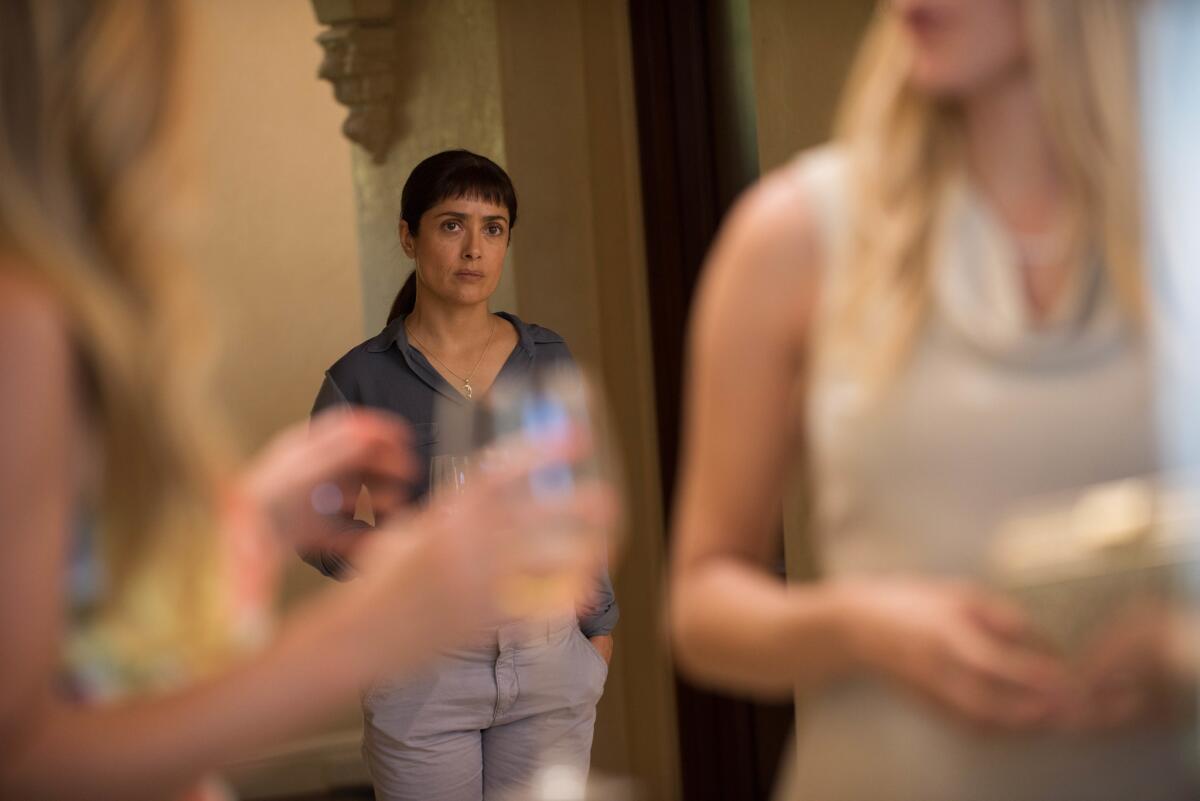
By the time the Sundance Film Festival came to a close Saturday night, it was clear that there had been no 2017 equivalent of âThe Birth of a Nationâ at the festival this year â no cinematic sensation that swooped in from nowhere to dominate the prizes, score the biggest acquisition deal and promise the industry a badly needed diversity makeover. (Happily, this yearâs Academy Award nominations have spared us a three-quel to #OscarsSoWhite.)
If anything, a certain amount of caution could be detected on the part of distributors, journalists and even filmmakers, as though everyone in attendance were trying to avoid the trap of self-importance in a year when real-world matters â from President Trumpâs inauguration and the womenâs march to reports of a cyber attack on the festival â provided more than their fair share of off-screen drama.
Which is not to suggest that the films unveiled over 10 days in Park City, Utah, were somehow disappointing, or not up to the challenge of speaking to our politically fraught moment. Far from it. There were, as usual, movies about fractious racial divisions, including âMudbound,â Dee Reesâ symphonic, superbly acted drama about two Mississippi families â one white, one black â struggling to survive in the shadow of World War II.
Less widely seen, although it won the audience award in the festivalâs Next sidebar (devoted to innovative, low-budget work), was Justin Chonâs âGook,â a raucous, bittersweet comedy set during the Los Angeles riots in April 1992. Shot in black-and-white, the movie both explores and sneakily subverts the fractious relations between Korean and African Americans during that tumultuous chapter.
That sold for HOW much? The big deals out of Sundance
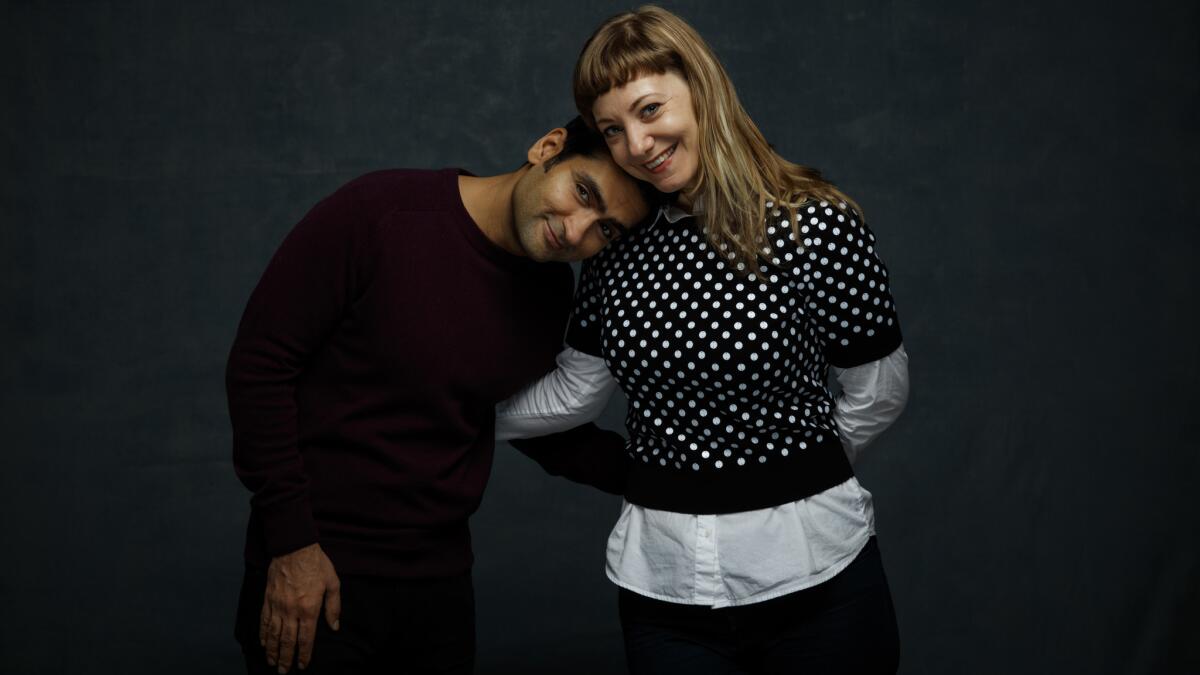
Last yearâs Sundance Film Festival saw two of the priciest deals in the history of this gathering: Fox Searchlightâs record-breaking $17.5 million for âThe Birth of a Nationâ and Amazon/Roadsideâs not quite as Brinks-busting $10 million for âManchester by the Sea.â
Those films wound up with two, well, very different commercial fates. As much as dollars can be an indicator of a filmâs value, theyâre hardly an ironclad guarantee of success. Too many other factors can enter the picture between the January frenzy in the mountains and the fall derby into which many of these films will enter.
Judging by the totals in Park City this year, buyers are feeling optimistic. Very optimistic. Whether itâs traditional players like Searchlight and Sony Pictures Classics, newer movers-and-shakers such as Amazon and Netflix or even upstarts like Neon and FilmRise, wallets have been opening up over the last week at Sundance. As of Friday, a whopping eight movies have gone for at least $5 million as the quantity of buyers (and, depending on whom you ask, the quality of movies) has sent dollar amounts skyward.
Which movies went for the biggest totals? And which have the best chance of repeating âManchesterâsâ box office and awards feats? We break down those eight big deals and handicap how theyâll pan out â or at least what studios will need to do to give them the best shot of succeeding.
Films about, and by, women take top honors at politics-heavy Sundance awards
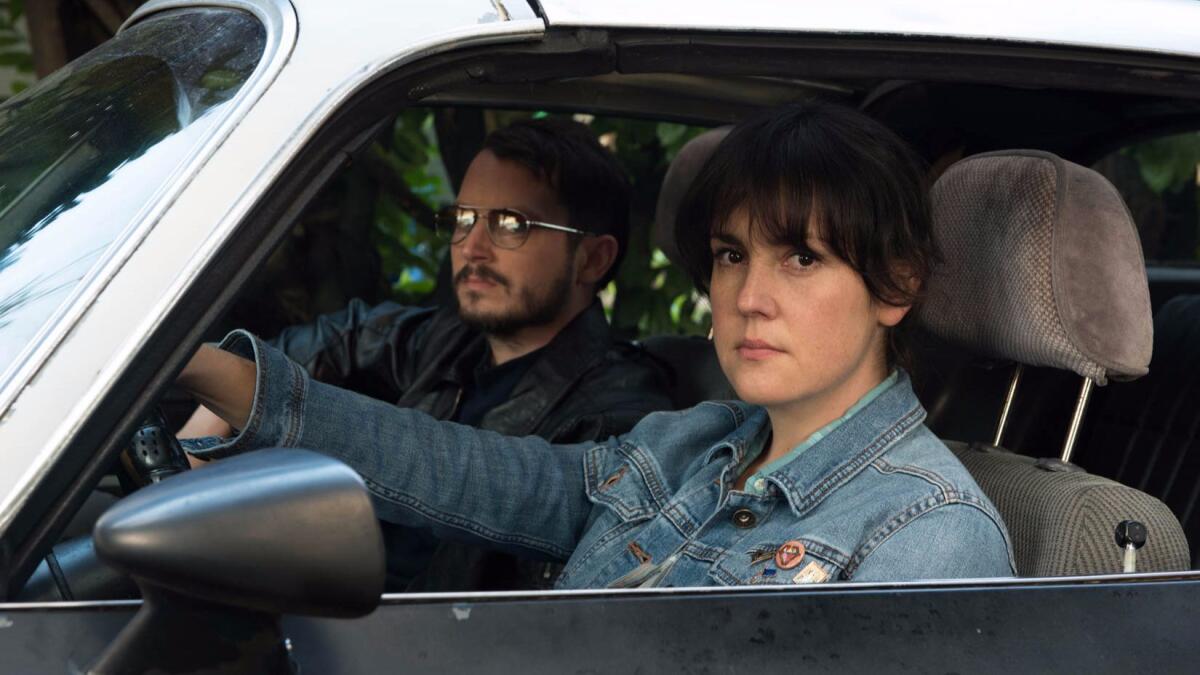
A Sundance Film Festival that was colored, gripped and sometimes overshadowed by the early days of the Donald Trump administration saw a slew of feminist films win big at the gatheringâs awards. Multiple female filmmakers nabbed top prizes, while a tale of a woman reasserting control over her life scored the festivalâs highest honor.
Macon Blairâs âI Donât Feel at Home in This World Anymore,â in which Melanie Lynskey plays an ordinary woman who becomes empowered as a detective-avenger after she is robbed, won the U.S. grand jury prize in the dramatic category. To its fans, the genre-tinged film, which Netflix will release next month, serves as a tonic to the perceived anti-female policies of the Trump administration.
And Eliza Hittmanâs gay coming-of-age story âBeach Ratsââ won the directing award for the U.S. dramatic section -- ensuring that a gathering that began with a march down this cityâs Main âStreet championing feminist values closed out with the same motif.
âThereâs nothing more taboo in this country than a woman with ambition,â Hittman said in her acceptance speech. âIâm going to work my way through a system thatâs completely discriminatory toward women. Hollywood, Iâm coming for you,â she finished to loud cheers.
Life lessons on family from âWilsonâ

Director Craig Johnson and actor Judy Greer discuss family in the film âWilson.â
âThoroughbredâ director Cory Finley on the art of character development

Cory Finley describes how he developed the characters for his film âThoroughbred.â
Favorite moments from âRoxanne Roxanneâ

Actors ChantĂŠ Adams and Nia Long talk about their favorites moments during the filming of âRoxanne Roxanne,â a hip-hop biopic about Roxanne ShantĂŠ, the iconic New York City MC.
The first meeting for âRoxanne Roxanneâ
âMudboundâ director Dee Rees shoots for the stars and gets her dream cast

Director Dee Rees talks about casting Mary J. Blige, Carey Mulligan and Jason Mitchell for her film âMudbound.â After loving Mitchellâs performance in âStraight Outta Compton,â Rees said, âIâd be so lucky to get him in my film.â
Why Sam Elliottâs smoking scene in âThe Heroâ was so âbrutalâ

Star Sam Elliott and director Brett Haley describe the difficulties of shooting the marijuana smoking scene in âThe Hero.â
Marianna Palka and Jason Ritter, on why âBitchâ is the perfect title for their film
Jim Strouse says âThe Incredible Jessica Jamesâ was made for Jessica Williams

Director Jim Strouse talks about writing the title character in âThe Incredible Jessica Jamesâ for Jessica Williams.
Post-racial horror âGet Out,â the scariest film at Sundance, skewers liberal America
The scariest film to come out of Sundance arrived the Monday after Donald Trump took office, when comedian Jordan Peele (âKey and Peele,â Keanuâ) unveiled a secret screening of his upcoming horror film âGet Out.â
Peele, known for satirizing Americaâs social landscape as one half of the sketch-comedy duo Key & Peele, makes his directorial debut with the tale of an African American man (âBlack Mirrorââs Daniel Kaluuya) heading upstate to meet his white girlfriendâs parents for the first time.
Itâs not their interracial romance thatâs the problem, but how the seemingly open-minded people in her hometown react: The rich old white folks eager to compliment Chrisâs physicality, ponder his sexual prowess, make sure to tell him how much they admire Tiger Woods.
Chris is relieved, then, to meet other black people around town â but canât put his finger on why they act so oddly happy to live in subservience, disquieting grins stretched across their faces.
Itâs âThe Stepford Wivesâ for a micro-aggressive 2017 America in which racism still lurks beneath a progressive smile, ignorant to its own existence.
The film, which Universal releases nationwide on Feb. 24, premiered at Sundance on the heels of Trumpâs first few days in the White House as the anxieties of the nationâs minorities were exacerbated by fears of whatâs to come. It couldnât feel more timely.
âIt was important to me for this movie not to be about this black guy going to the South, to a red state, where the presumption for a lot of people is that everybodyâs racist there,â Peele told the audience. âThis was really meant to take a stab at the liberal elite that tends to believe that theyâre â weâre â above these things.â
The cast (including Lakeith Stanfield, Catherine Keener, Bradley Whitford and Lil Rel Howery) is sharp, and so is the unblinking racial satire seeded in darkly humorous moments that ring acutely, awkwardly true â like when Chris tempers his initial trepidation as Rose (Allison Williams) insists that her affluent liberal parents are far from racist because, after all, her dad âwould vote for Obama for a third term if he could!â
Among the sold-out midnight crowd was an enthusiastic Patton Oswalt, who stood up during the post-screening Q&A to tell Peele that the film, produced by âThe Purgeâ and âSplitâ horror maven Jason Blum, was brilliant.
Also reportedly spotted in the late-night audience: Former first daughter Malia Obama, who made the most of her trip to Sundance (and readied for her upcoming internship with film mogul Harvey Weinstein) not by partying her way through Park City but by actually watching films.
Her reported presence at âGet Outâ made those President Obama references ring louder, but also underscored the prescient timing of its release.
Premiering at Sundance two days after the world witnessed a historic show of solidarity by women and minorities united against Trumpâs proposed policies, âGet Outâ is a mildly gory, crowd-pleasing ride with a pointed provocation for its mass audience: If you think racism no longer exists, look more closely.
Peele got the idea over eight years ago while watching division erupt in liberal circles as Hillary Clinton and Obama faced off in the primaries for the Democratic nomination.
âAll of a sudden the country was focused for a second on the black civil rights and womenâs civil rights movements and where they intersect, and there was this question of, âWho deserves to be president more? Whoâs waited long enough?â Of course, itâs an absurd thing that civil rights are even divided. It should be one civil right,â Peele said.
âFor while when we had a black president, we were living in this post-racial lie,â he added. âThe idea of, âWeâre past it â weâre past it all!â For me, and for many people out there â as all black people know â thereâs racism. I experience it on an everyday basis. This movie was meant to reveal that thereâs this monster of racism lurking underneath some of these seemingly innocent conversations and situations.â
Watch a nightclub shooting in virtual reality? For Rose Troche, painful subjects make for powerful art
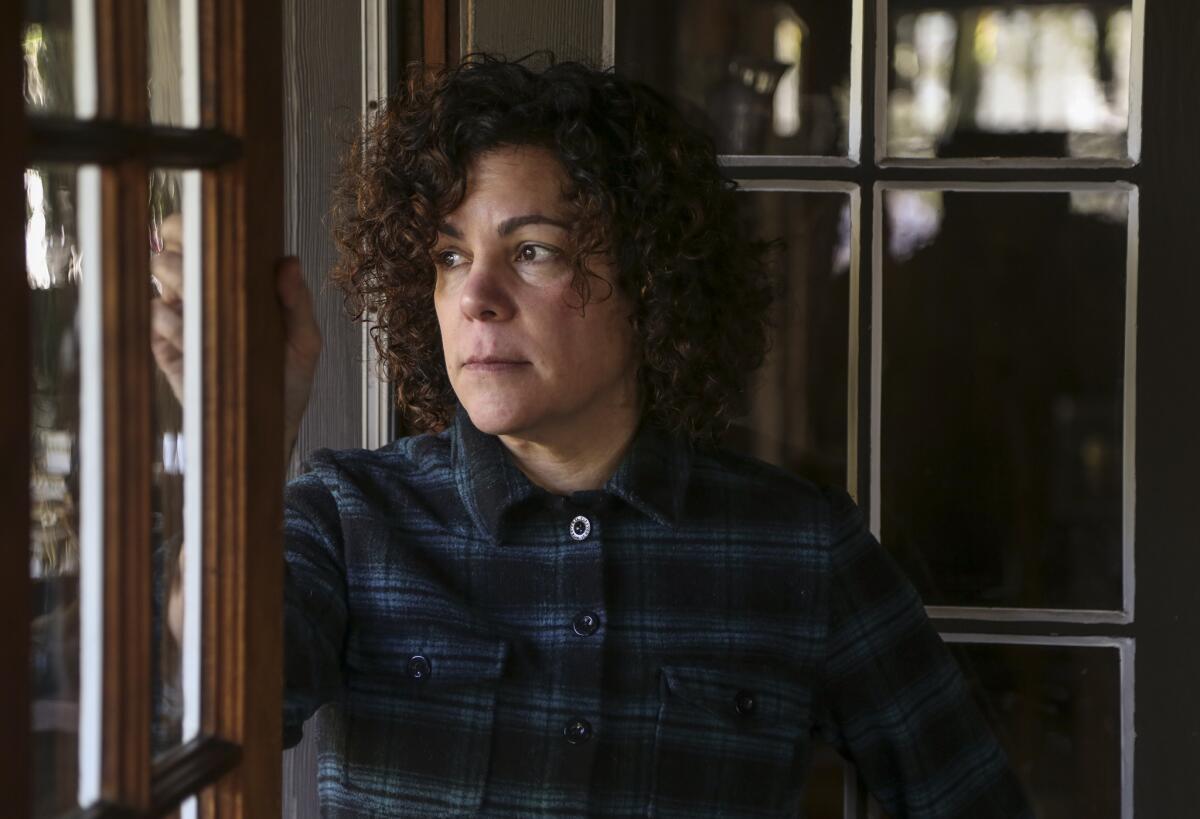
Rose Troche says she came out three times in her life: first as a Puerto Rican, next as an artist and finally as a gay person.
âBy the time I came out as gay, it was like, âOh, this old thing?ââ jokes Troche, the child of immigrant parents who grew up hiding her minority identity on multiple levels in a tough Chicago neighborhood during the 1960s and â70s.
Relaxing on a couch in a Hollywood Hills chalet, she explains how sheâs in the midst of a fourth coming-out of sorts. As a writer and director on the vanguard of virtual reality, sheâs trying to articulate that her latest form of art isnât filmmaking.
Itâs a tricky but important sticking point for the celebrated indie filmmaker, whose virtual reality project âIf Not Loveâ premiered this week at the Sundance Film Festivalâs experimental New Frontier arts and media exhibition.
Since 2012, New Frontier has showcased the film worldâs bold and exciting steps into the VR space. Troche, who has exhibited three pieces at New Frontier since 2014, is searching for fresh language to describe that entrance.
âIâm advocating for a whole new set of words so that we stop calling it âcinema,ââ she says. âThis needs to exist as what it is and not be put into a funnel of what is a beautiful and amazing medium, but itâs not the same thing.â
Troche would know. She carved out a career for herself in film after her 1994 feature debut, the lesbian romantic comedy âGo Fish,â became a cult hit. Made for $15,000, the film grossed more than $2.4 million at the box office thanks to a string of awards and a nomination for a Grand Jury Prize at Sundance.
I do pieces that take you to places that you donât want to go, and I donât want to take you to those places on a whim or in a cavalier way.
— Rose Troche
Film gave way to a decade spent building commercial success in television, most notably as the co-executive producer of the lesbian drama âThe L Word.â But a history of social activism and a desire for a new artistic challenge drove Troche to create VR work.
Three out of four of her pieces have dealt with difficult subjects. âPerspective Chapter 1: The Partyâ was a first-person exploration of date rape from the point of view of both the survivor and the assailant. âPerspective Chapter 2: The Misdemeanorâ told the story of a police shooting from the perspective of a policeman and a young black man being shot.
The new work, âIf Not Love,â is a short piece that takes the viewer on a painful, 360-degree journey through a mass shooting at a gay nightclub. âIf Not Loveâ isnât intended to re-create last yearâs Pulse nightclub massacre in Orlando, Fla., but the project was inspired by that incident as well as by the tragedy in Nice, France, when a truck plowed through a crowd at a Bastille Day celebration.
In both cases, Troche wondered if anything could have been done to stop the violence.
âIf Not Loveâ explores that thought by following the story of a closeted gay man who, after an anonymous hookup, decides to carry out a shooting at a nightclub. The piece presents an alternate scenario where, instead of letting him leave after sex, the manâs partner asks him to stay. The two men kiss and hold each other, while back at the nightclub the bodies on the ground suddenly rise up in reverse of the falls they took in the shooting.
The idea, which Troche admits is perhaps naively simplistic, is that a single act of love just might save someone from himself. She felt VR would be the most effective medium to get her idea across because of its immediacy.
âThis form allows you a shortness of story, but in a more immersive way,â Troche says. âI do pieces that take you to places that you donât want to go, and I donât want to take you to those places on a whim or in a cavalier way. I wouldnât want you to be immersed in this for more than seven minutes.â
If this isnât film, what is it? You watch it like film, only through a special headset. And the watching is active, instead of inactive. VR encourages you to move around â to look up, down, right and left. If you turn completely around during the scene in âIf Not Love,â when the shooter is leaving after his secret tryst, for example, you will see a childâs car seat.
With VR, Troche says, âwe are relearning how to watch. Itâs teaching us how to view things differently, and to be more intuitive viewers.â
New Frontier curator Shari Frilot says she has invited Troche to exhibit year after year because of her âability to emotionally penetrate the limits of the intellect ⌠in ways that are powerful, familiar and accessible.â
âShe continues to stand out as a storyteller in this field who is doing something unique around combining classic aspects of filmmaking â character, performance, story structure â with the embodied power of this immersive medium in ways that continue to push this field forward,â says Frilot, who has seen New Frontier grow exponentially since its inception in 2007 as a fledgling space at the intersection of art, filmmaking and technology.
Troche believes that VR will claim its rightful place in the pantheon of future media arts when its makers learn to create strong narratives with powerhouse performances. Three years ago, she says, it was popular to say narrative couldnât be done in VR. This has been proven false, but to date she doesnât feel the accomplishment has been properly achieved.
âItâs really important to me to test the parameters of how to create sustainable narratives in VR,â Troche says, adding that the sooner a cohesive language to describe it emerges, including critics who understand and employ that language, the sooner that feat will be accomplished.
Actors, too, will need to relearn their craft if VR is to flourish. Actors are never off camera in a 360-degree film, unless they physically leave the room. Itâs almost like being in a play, only, unlike with theater, actors in VR need to understate everything. The more they project in VR, the more false they look.
Trocheâs next step into the narrative realm is a 30-minute VR comedy series called âLGBTQIA,â which she describes as âThe Bad News Bearsâ of gay comedy.
âIâm trying to find the strengths of VR and what it has to offer,â she says.
âI watched the film âBlueâ alone in a movie theater, and I remember being in the space and bubble and world of it. I think VR has the potential to put viewers back in that space in a whole new way.â
Mike White and Miguel Arteta serve up Trump-era allegory in âBeatriz at Dinnerâ
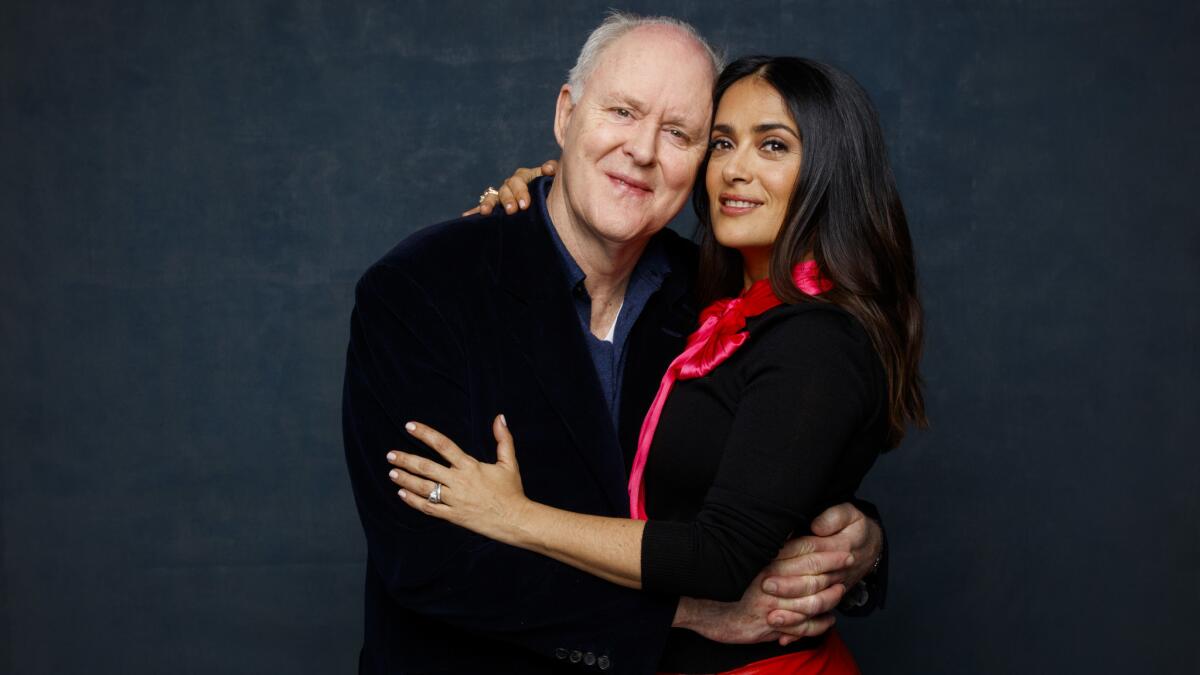
Itâs a common feeling, being the odd one out. Writer Mike White seems to have made a career of it, assaying oddballs and misfits and the indignation, righteous and otherwise, that can follow with them. His ongoing on-and-off collaboration with director Miguel Arteta includes the films âChuck & Buckâ and âThe Good Girl,â both of which premiered at Sundance, the television show âEnlightenedâ and now the new movie âBeatriz at Dinner.â
In âBeatriz at Dinner,â which is playing as part of the Premieres section at the festival, White and Arteta again update their exploration of feeling out of place. Salma Hayek plays a masseuse and spiritual healer in Los Angeles who, after her car breaks down, is invited to stay at her clientâs mansion for a dinner party. When one of the guests turns out to be a mega-wealthy, celebrity real estate developer (sound familiar?), two very different worldviews come into contact and conflict.
Hayekâs Beatriz is quiet and watchful while John Lithgowâs performance as the developer is powerful and brash, as both bring an undercurrent of earnestness that avoids tipping into caricature. Connie Britton, David Warshofsky, ChloĂŤ Sevigny, Amy Landecker, John Early and Jay Duplass fill out the cast.
The film is by turns wounded and confused, virtuous and angry. Even though it was begun well before the election of Donald Trump to the presidency, the film still has a reeling, decentered emotional core that makes it feel extremely current.
Can an amateur craftsman, on the floor of his unheated home, replicate a priceless violin?
He started playing at age 2½ and had his debut with the Philadelphia Orchestra when he was 10. So when film director Stefan Avalos says âIâve never not known the violin,â he is not being hyperbolic.
But even Avalos had never met anyone like Danny Houck, the violin-obsessed subject of his irresistible, way-stranger-than-fiction documentary âStrad Style,â which screened this week at Sundanceâs crosstown rival, Slamdance.
An eccentric loner living on next to no money in a rundown farmhouse in Laurelville, Ohio, Houck lives and breathes the violin. âHis knowledge is encyclopedic, he will tell you things you never knew,â says Avalos. âHe is absolutely obsessed and immersed in the thing.â
More than that, Houck somehow contrives to build violins as well. And when he agreed to make an exact copy of Guarneriâs Il Cannone (the great Paganiniâs instrument and one of the most famous violins ever made) for a rising European star, a personal and professional journey that almost defies belief began.
Avalos, who eventually transferred allegiance from music to movies, was contemplating something else entirely when Houck crossed his path. âI had been working for two years on a wide-ranging documentary about the obsession people had with the great violins, about the makers, the players, the collectors and the thieves,â he says.
âI heard through the grapevine, from a player at the Columbus Symphony,â Avalos continues, âabout a guy who lived in the middle of nowhere and was really obsessed with making violins. I thought he would make an amusing five-minute bit in my film.â
Luca Guadagninoâs âCall Me by Your Nameâ heats up a frigid festival
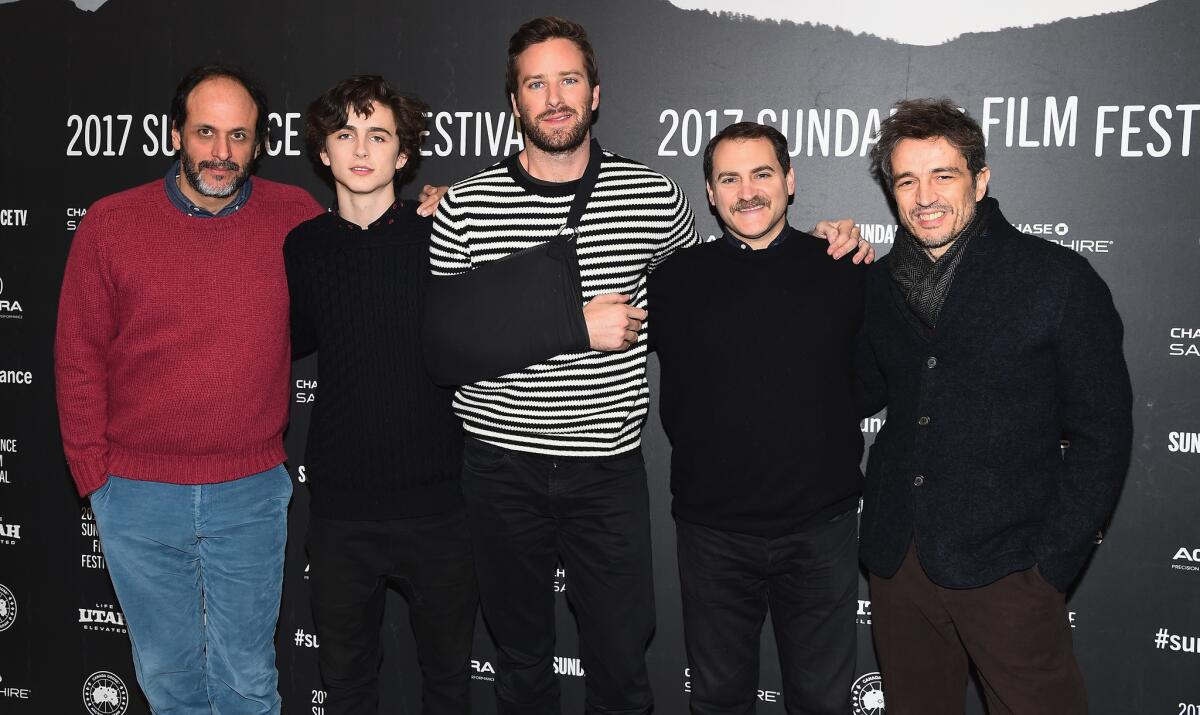
Itâs become something of a film festival truism that certain movies play better at high altitudes. Exhibit A would probably be âThe Blair Witch Project,â which took Sundance by storm in 1999 and generated tremendous word-of-mouth buzz, but was widely considered a disappointment by those who flocked to see it in theaters. As the conventional wisdom goes, the movieâs lost-in-the-woods premise played like gangbusters in chilly, secluded Park City, Utah, in a way that it simply couldnât replicate closer to sea level.
Which is not to suggest that films featuring frigid forest settings have some sort of Sundance advantage. The reverse, in fact, can also be true. For viewers experiencing the frost fatigue that always sets in mid-festival, a movie set over the course of, say, a long, hot summer in Italy â where young people lie about in the sun, imbibing fresh-squeezed fruit juice and the sight of each otherâs beautiful bodies â might be just the thing to take the edge off that Park City chill.
And so it was excellent meteorological counterprogramming that the festival chose one of its coldest, snowiest days so far to unveil Luca Guadagninoâs intoxicatingly al fresco new movie, âCall Me by Your Name.â Adapted from AndrĂŠ Acimanâs novel about a teenagerâs summer of love in the 1980s, the film has all the wild beauty and simmering erotic languor weâve come to expect from the director of âI Am Loveâ and âA Bigger Splash,â both of which followed characters looking for love in all the wrong (but fabulously beautiful and luxurious) places.
âCrown Heightsâ tells the true story of long fight to free a man jailed for a crime he didnât commit
To this day, Carl King canât quite explain why he did it. Why he sacrificed 20 years of his life. His marriage. His financial security. All in a long shot bid to get his friend Colin Warner out of prison.
âMaybe it was that I grew up in a family, in Trinidad, where my older siblings were always involved in student activities,â King said. âOr maybe it just felt like a purpose. Itâs your brother, and youâre not going to give up until you can help him.â
In 1980, Warner was 18, living in the Caribbean section of the Brooklyn, N.Y., neighborhood of Crown Heights. One day, the cops showed up and arrested him. He was charged with killing Mario Hamilton, a young Jamaican man in nearby Flatbush. Warner had never met Hamilton. He had never even heard of him.
In most situations, Warner would have been released quickly and the charges dropped. There was no physical evidence to implicate him and no credible witnesses either.
But the events, as told in Matt Ruskinâs new distribution-seeking Sundance movie âCrown Heights,â unfolded more tragically. With Lakeith Stanfield as Warner and Nnamdi Asomugha as King, the film offers a new twist on the buddy movie â one far more serious than slapstick. âCrown Heightsâ is a pointed reminder of the gaping flaws in the criminal justice system and the power of perseverance and loyalty to overcome them.
L.A. Times critics weigh in on the 2017 Oscars nominations

From Amy Adamsâ leading actress snub to Mel Gibsonâs resurgence, L.A. Times film critics Kenneth Turan and Justin Chang discuss the Oscar nominations.
L.A. Times film critics Justin Chang and Kenneth Turan discuss the 2017 Oscar nominations, including Amy Adamsâ leading actress snub and Mel Gibsonâs resurgence. (Video by Myung Chun / Los Angeles Times
Behind the Scenes at the L.A. Times photo and video studio

A behind-the-scenes look at the L.A. Times photo and video studio at the Sundance Film Festival.
A behind the scenes look at the L.A. Times photo and video studio at the Sundance Film Festival. (Video by Myung Chun / Los Angeles Times)
Laura Dern and Woody Harrelson on making âWilsonâ and beating him up

Actors Laura Dern and Woody Harrelson reflect on working together in the film âWilson.â
Actors Laura Dern and Woody Harrelson reflect on working together in the film âWilson,â with Harrelson saying heâs âgotta get out of the quicksandâ of drama. Video by Myung Chun /Interview by Steven Zeitchik
The casts of âWilson,â âLandline,â âStrangersâ and âThe Last Wordâ in the L.A. Times photo studio
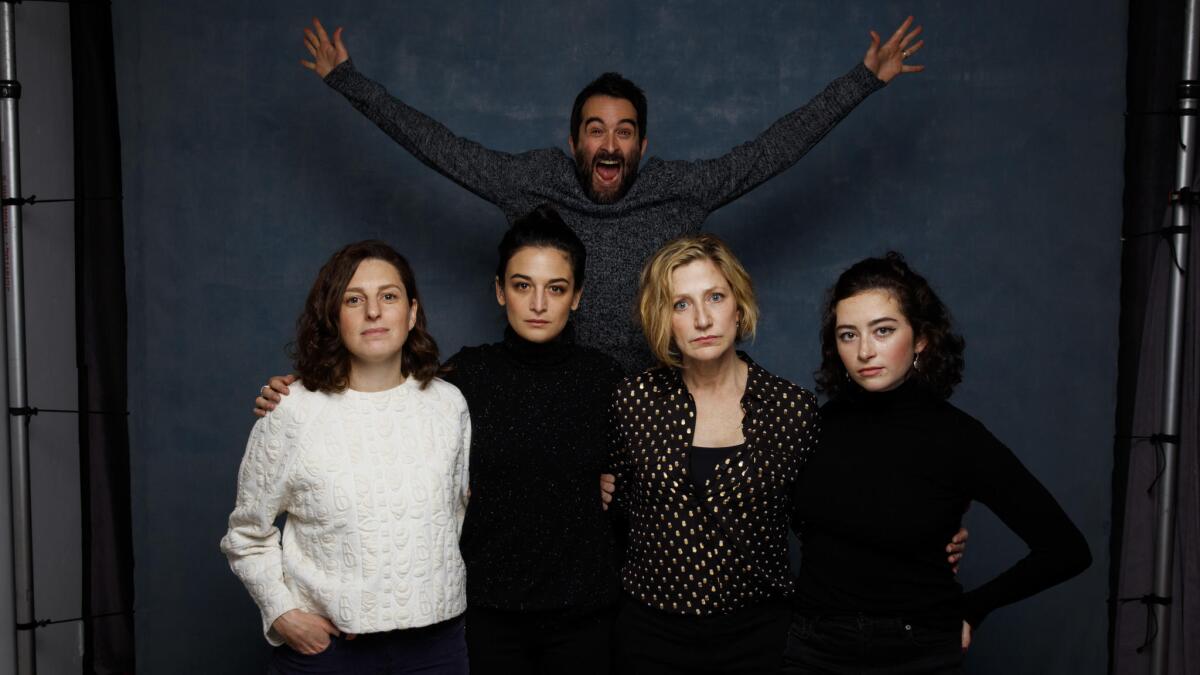
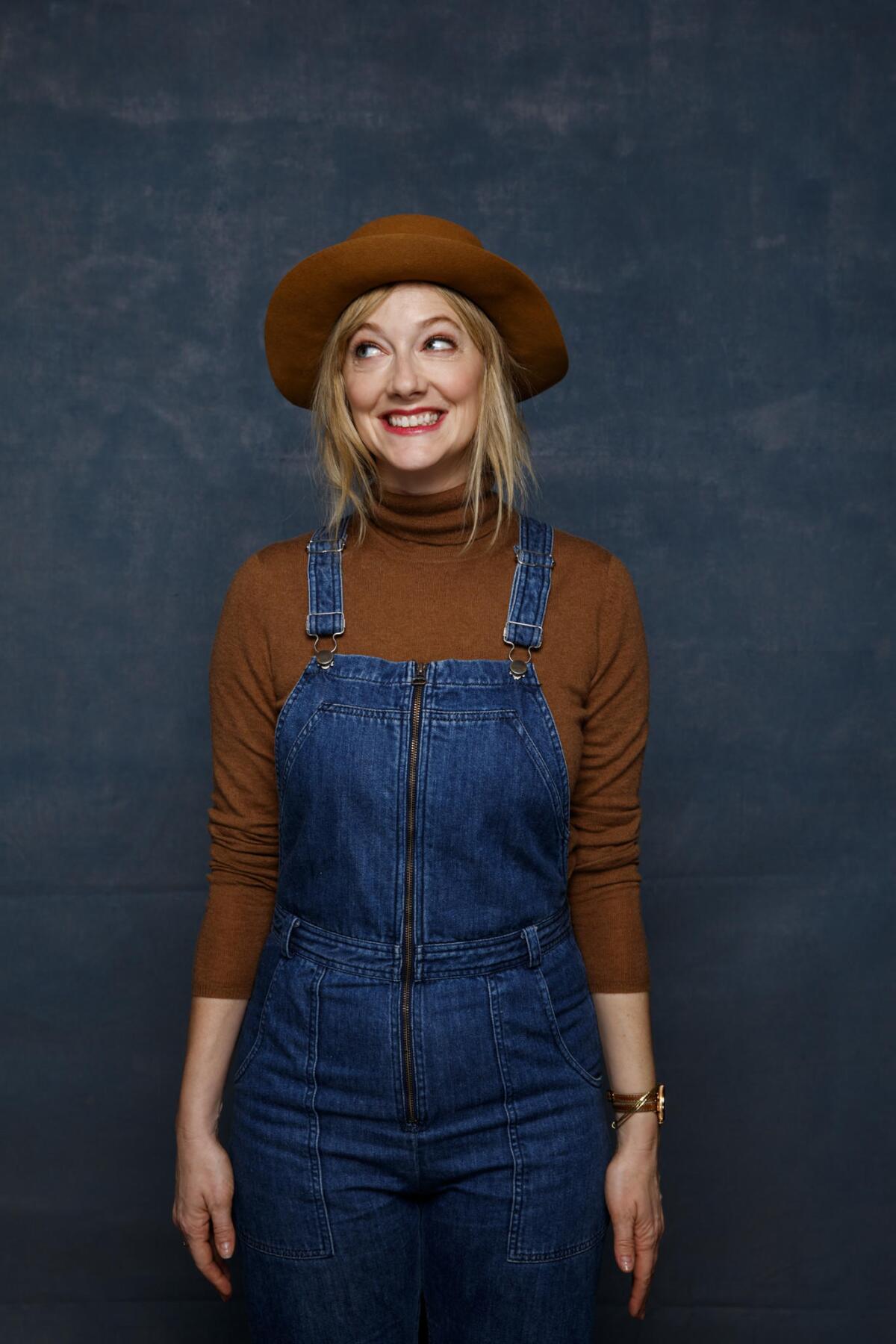
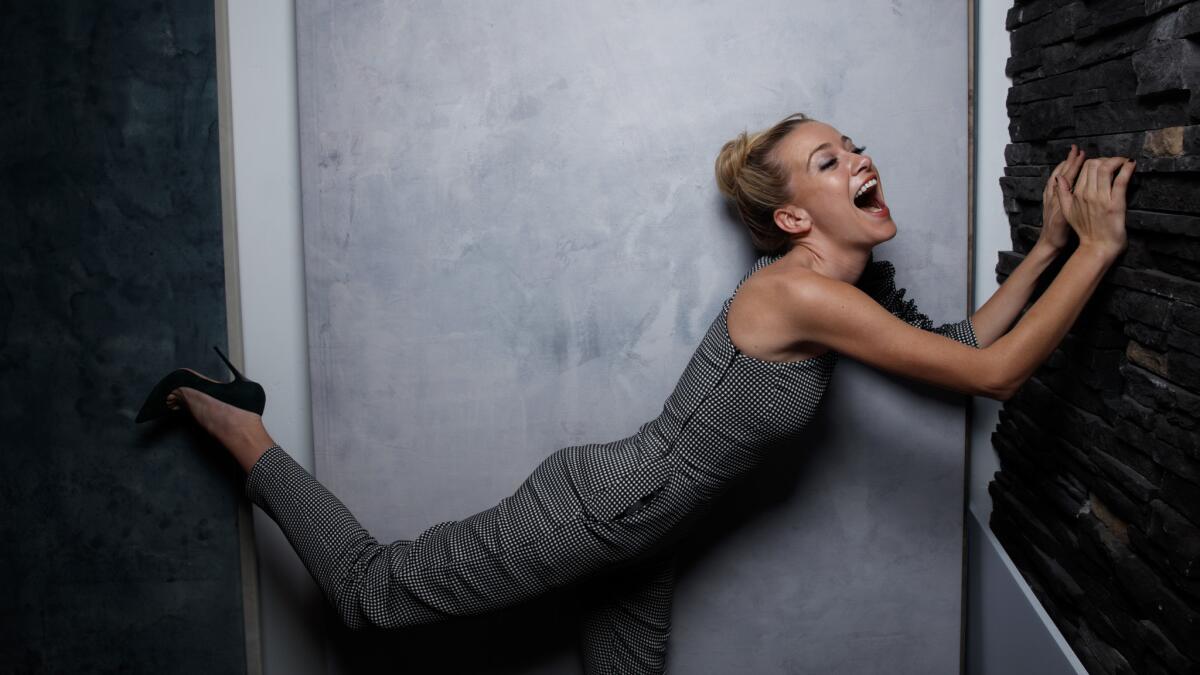
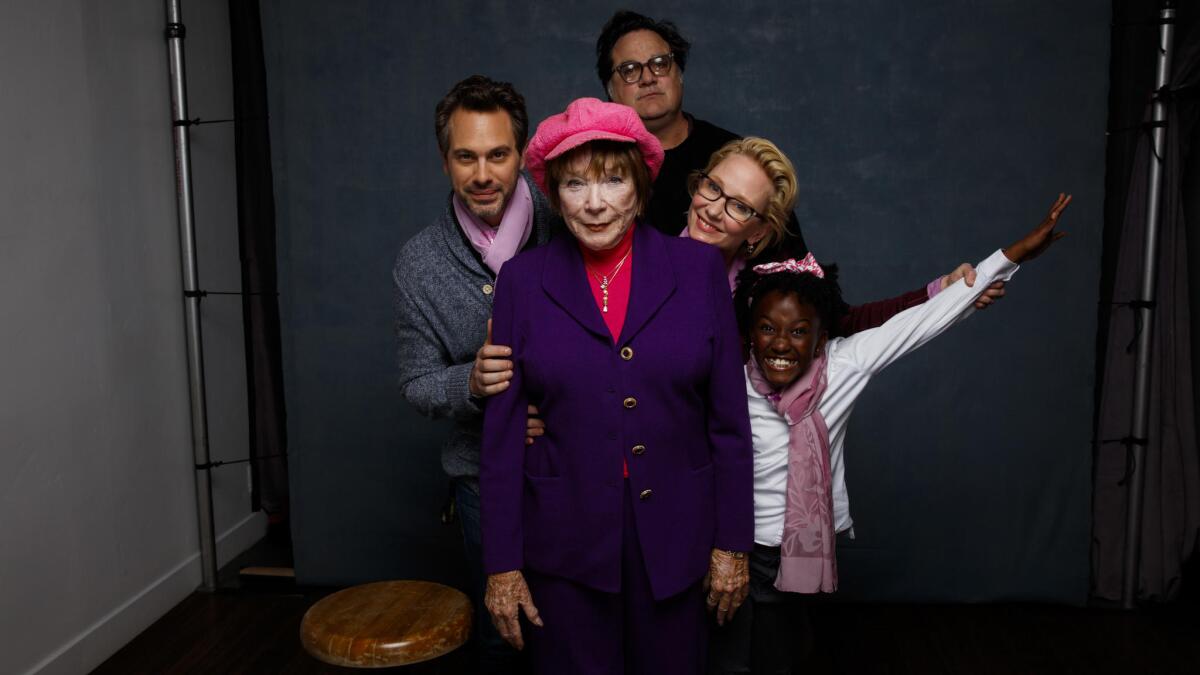
Shailene Woodley, protesters urge Sundance to axe ties with DAPL-funding sponsor
Monday afternoon actress-activist Shailene Woodley joined #NoDAPL protesters marching into the heart of the Sundance Film Festival to challenge Robert Redfordâs Sundance Institute to put its money where its mouth is: Cut ties to festival sponsor Chase Bank over its funding of the Dakota Access Pipeline.
âThere is a hypocrisy in talking about indigenous cultures but not doing anything, as a non-native ally, to stand with them,â Woodley said in a live video posted to her Facebook page from the protest, which made its way down Main Street in Park City, Utah, in even harsher conditions than those that greeted Chelsea Handler and other Hollywood stars on Saturday.
Two days earlier, 8,000 protesters joined a celebrity-led Womenâs March to oppose the incoming administration of President Trump, marching and chanting down the same snow-covered roads.
Mondayâs group of water protectors carrying anti-Dakota Access Pipeline signs and banners purposefully made their way down Main Street to take up signs in front of the Chase Sapphire Lounge -- a sponsored venue that is hosting high-profile events and premiere after-parties throughout the Sundance Film Festival.
Chase Bank is also a presenting sponsor of the 2017 Sundance Film Festival and has a major presence at the annual fest historically known for its activist streak.
St. Vincent and Roxanne Benjamin on directing âXXâ

Singer-songwriter St. Vincent and Roxanne Benjamin talk about directing the anthology âXX.â
Singer-songwriter St. Vincent and Roxanne Benjamin talk about directing the anthology âXX.â Video by Myung Chun / Los Angeles Times
Gigi Gorgeous documents âthe real meâ as an education in transgenderism

Transgender vlogger Gigi Gorgeous says, âIâve always felt that sharing my story was the best way to educate people.â Now she has a documentary, âThis Is Everything: Gigi Gorgeous.â
YouTube superstar Gigi Gorgeous on her Sundance documentary âThis Is Everythingâ (in theaters February 3 and on YouTube Red February 8), which chronicles her journey from beauty vlogger to millennial transgender icon, directed by Oscar-winning filmmaker Barbara Kopple (âMiss Sharon Jones!â). Video by Myung Chun / Los Angeles Times
Kumail Nanjiani and Emily V. Gordon tell their love story - and its twists - in âThe Big Sickâ

Husband and wife Kumail Nanjiani and Emily V. Gordon relay a fictionalized version of their lives in âThe Big Sick.â The movie was recently acquired by Amazon Studios for $12 million.
Husband and wife Kumail Nanjiani and Emily V. Gordon relay a fictionalized version of their lives in âThe Big Sick.â The movie was recently acquired by Amazon Studios for $12 million. Video by Myung Chun / Los Angeles Times
Kenneth Turanâs Sundance documentary picks

L.A. Times film critic Kenneth Turan shares his documentary picks from the first weekend of the Sundance Film Festival.
L.A. Times film critic Kenneth Turan shares his documentary picks from the first weekend of the Sundance Film Festival. Video by Myung Chun / Los Angeles Times
Olivia Cooke and Anya Taylor-Joy of âThoroughbredâ

Olivia Cooke and Anya Taylor-Joy star in the dark Sundance film âThoroughbred.â
Olivia Cooke and Anya Taylor-Joy star in the dark Sundance film âThoroughbred.â Video by Myung Chun / Los Angeles Times
Justin Changâs surprise Sundance pick

L.A. Times film critic Justin Chang found a pleasant surprise in the Sundance film âBefore I Fall.â
L.A. Times film critic Justin Chang found a pleasant surprise in the Sundance film âBefore I Fall.â Video by Myung Chun / Los Angeles Times
Critics Kenneth Turan and Justin Chang discuss first week

L.A. Times film critics Kenneth Turan and Justin Chang share their likes from the first weekend of the Sundance Film Festival.
L.A. Times film critics Kenneth Turan and Justin Chang share their likes from the first weekend of the Sundance Film Festival. Video by Myung Chun / Los Angeles Times
Government corruption and big-wave fever: Two documentaries look at Californiaâs fraught relationship with water
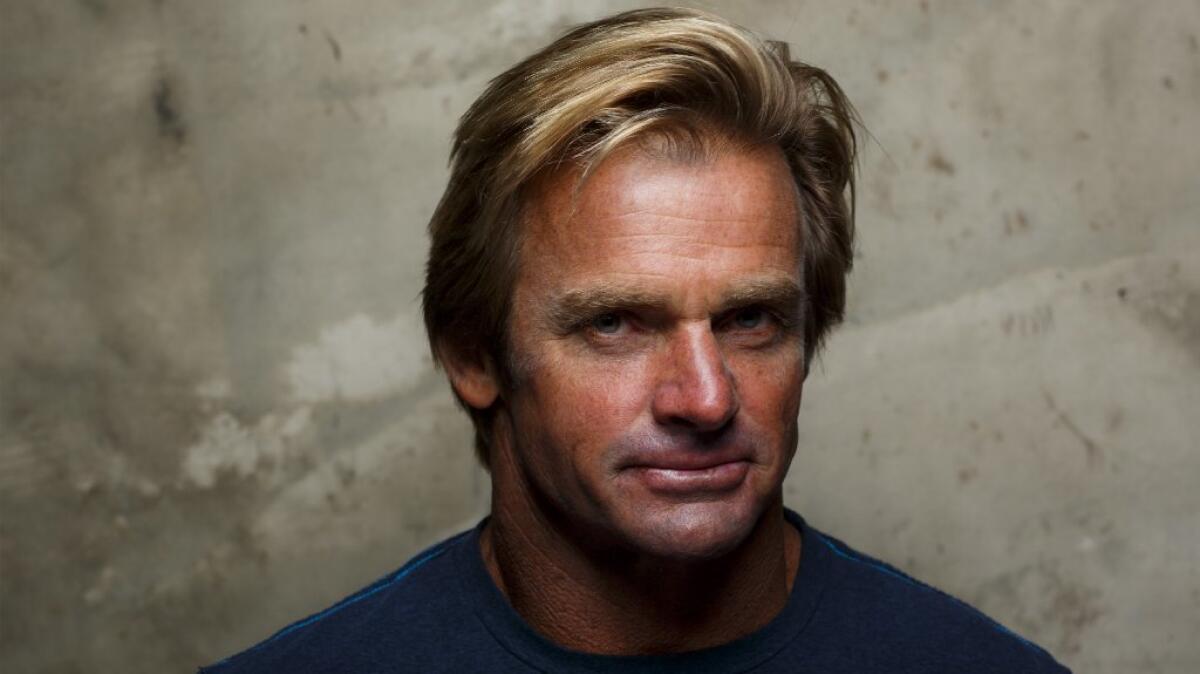
Marina Zenovich holds up a glass and looks hard at the clear liquid inside. âWater is right there, we see it every day. Itâs something we all need, but we donât necessarily know where it comes from.â
Rory Kennedy looks out a window at a snowy mountain and talks about seeing Laird Hamilton âsurf these avalanches of water. It was really incredible, there is some awe and wonder that I will admit to.â
California may be the Golden State, but given how important water is both to our survival living in a desert and to our image as home to surfer culture, maybe the Aqua State would be a more fitting name.
In one of those only-in-Sundance coincidences, two excellent documentaries dealing with different aspects of that essential liquid are debuting here: Zenovichâs âWater & Power: A California Heist,â a scalding investigation of the politics of water, and Kennedyâs âTake Every Wave: The Life of Laird Hamilton,â a compelling look at the remarkable achievements and unbending personality of a legendary surfing innovator.
In another coincidence, both documentaries are departures from their directorsâ usual focuses.
Kennedy (âLast Days in Vietnam,â âGhosts of Abu Ghraibâ) smiles and says âmost would agree that this is an unusual pairing to say the leastâ for a filmmaker whose âpassion is pretty hard-hitting documentaries about social issues, paying attention to people who donât have a voice. This was not that.â
Zenovich, best known for âRoman Polanski: Wanted and Desiredâ and âRichard Pryor: Omit the Logic,â grins as well when she jokes, âMaybe Rory should have made my movie and I should have made hers.â
Yet not only do both documentaries turn out exceptionally well, both have factors that connect to the filmmakersâ life and work in an essential way.
Zenovich for her part says, âI make films about difficult men,â which includes the water barons who are at the heart of her investigation into a situation so suspicious that when executive producer Alex Gibney pitched it to her he called it ââChinatown,â the Documentary.â More than that, Zenovich turns out to have a strong connection to both politics and Californiaâs Central Valley, the documentaryâs ground zero.
Janicza Bravoâs oddball âLemonâ is tart and sweet
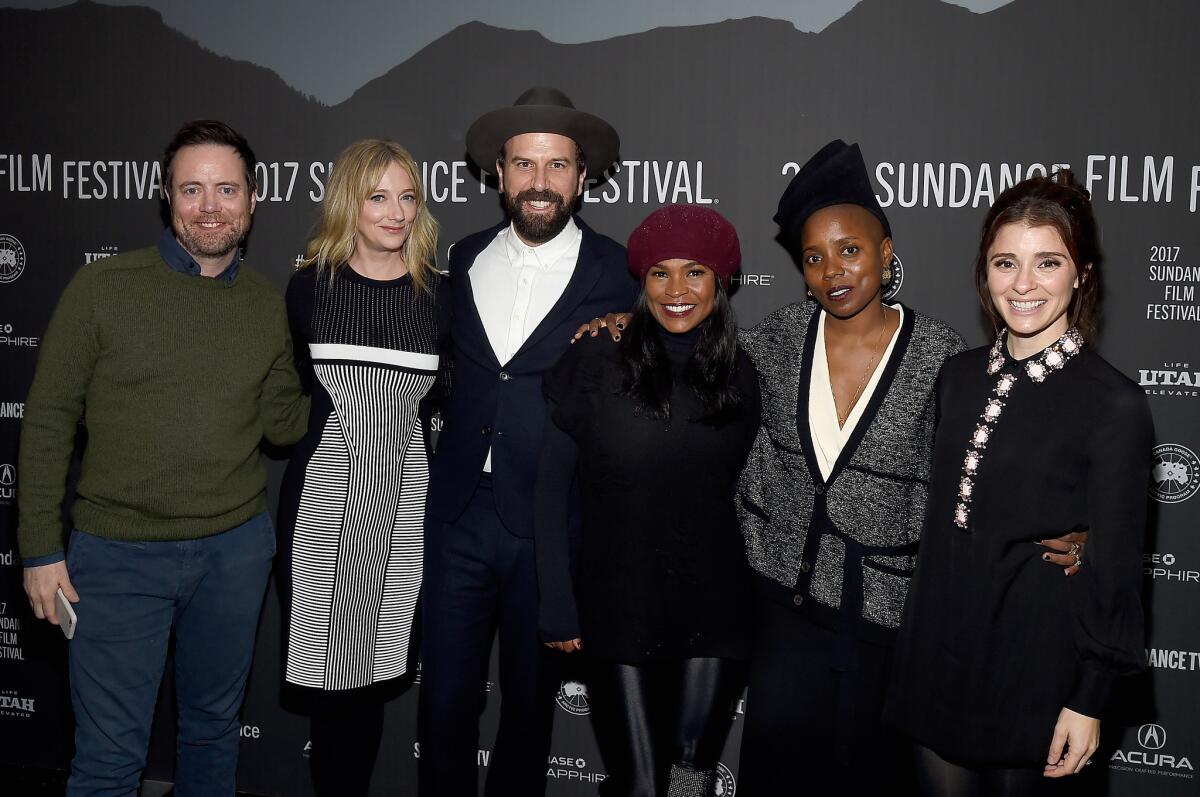
Earlier in the weekend a Sundance programmer introduced a film in the festivalâs Next section by saying, âIt is the best section of the festival where we show the coolest movies.â That was born out on Sunday night at the world premiere of the Next title âLemon,â the tartly sweet feature debut for director Janicza Bravo.
Bravo won the festivalâs short film grand jury prize with her âGregory Go Boomâ in 2014 and directed an episode of the Golden Globe winning television show âAtlanta.â Before the screening of âLemon,â Sundance director of programming Trevor Groth introduced Bravo by calling her work âso audacious, so visionaryâ and adding, âI feel like she should already be a household name. Itâs shocking to me that this is her first feature.â
Introducing the film, Bravo said, âI canât believe this is happening. Hellâs bells. I could ⌠my pants and it would totally be fine, I wouldnât mind it at all. Iâve wanted this for so long. I really want to say something magical and special right now, but I felt breezy all day and I suddenly feel not breezy at all.
âThank you to everyone who said yes to me. Thank you to everyone who said no, you jerks,â she added. âI cherish this moment, I have wanted to be in a room like this with people like you having this moment and I canât believe itâs happening and I get to be a part of it. I will never, ever forget this, unless I have some kind of degenerative brain disease that eats away at my brain then I wonât remember. But until then I will remember.â
Co-written by Bravo and Brett Gelman, the film follows the travails of Isaac Lachmann (played by Gelman) as he undergoes a moment of crisis. His longtime girlfriend (Judy Greer) is in the process of leaving him, the small theater production he is directing isnât going well, his acting career is stalled and his family is a pit of bad feelings. A woman he meets through work (Nia Long) provides one possible bright spot.
The Sunday night audience burst into applause during the movie after a post-Seder dinner family sing-along of the tune âA Million Matzoh Ballsâ including Gelman, Shiri Appleby, Martin Starr, Fred Melamud, Rhea Perlman and David Paymer. In the history of Sundance moments of family dysfunction, this may be a new classic.
After the movie Bravo brought up nearly 20 members of the cast and production team, including actresses Long, Greer and Appleby. Bravo noted that she and Gelman, a couple in real life, began writing the project some five years ago.
Gelman continued, âWhen she came up with the idea for this movie it was sort of a moment in time where we were very nervous about where we were at in our lives,â Gelman said. âIt was fear that we had and we felt a lot of people had when you wake up one day and youâre like where am I in my life, how did I get here? I felt like this was going to be different. And do I even have the tools to make it better at all? So we addressed that.â
âTheyâre really just amalgamationsâ Bravo added of the characters. âWeâre very anxious, and worried and concerned. We read chill, but [weâre] not chill a lot. So all of these amalgamations are of those feelings.â
Composer Heather Christian, a long-time collaborator who has worked with Bravo on her short films and on theater pieces, described how they used instrumentation to reflect the different characters and moods and to reference Chekhovâs âThe Seagull,â which is seen being performed by Michael Cera and Gillian Jacobs in a few short scenes.
âItâs a sneaky nerdy kind of way to go slightly askew,â Christian said, in not a bad summation of the film itself.
âGreat, solid answer. I like that,â Bravo replied. âThatâs my review.â
Kristen Stewart directed a film about her past breakups (and maybe Robert Pattinson)
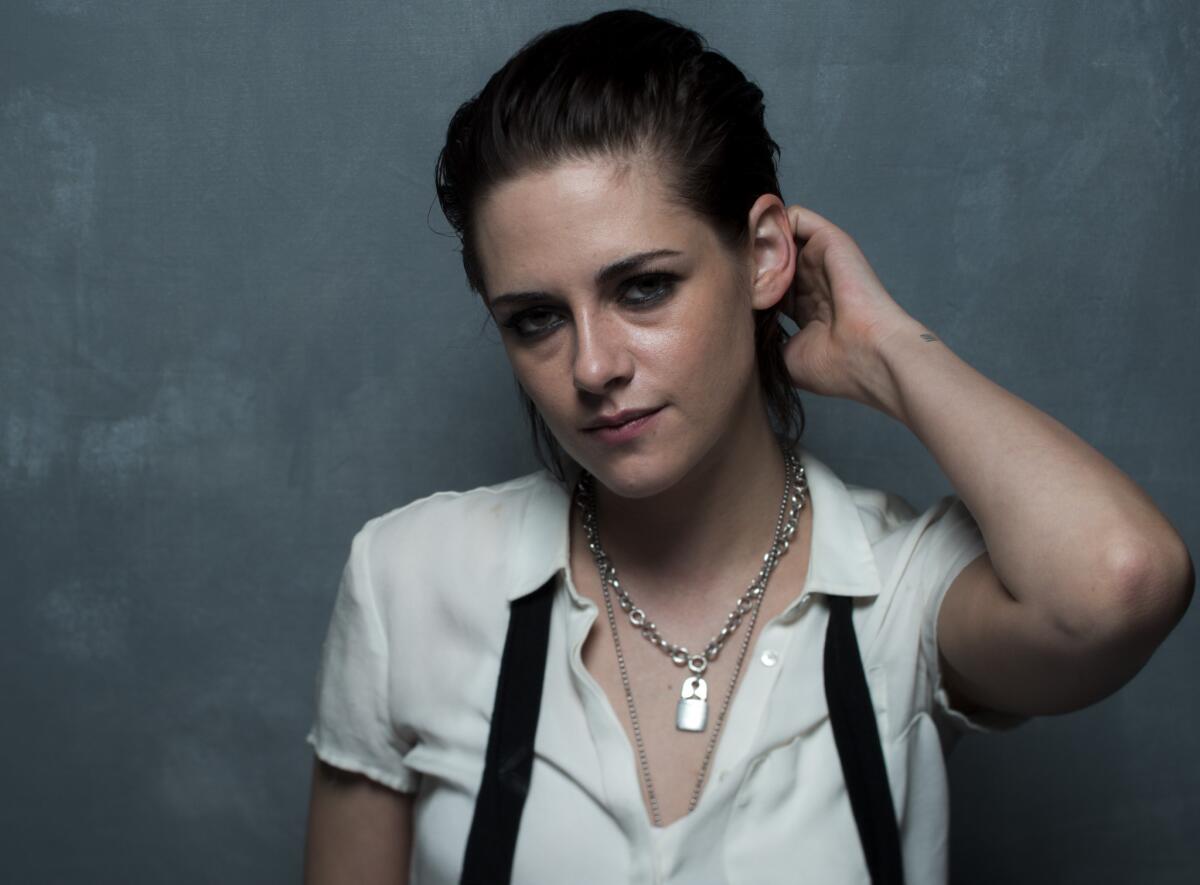
Kristen Stewart knows the kind of thoughts people are going to have about her directorial debut. And sheâs not especially concerned with them.
âI wasnât fearful in confronting what this was about,â the star said of her new work, a short film titled âCome Swim.â âI mean, I put a relationship right in the middle of it.â
Stewartâs fame these days comes primarily from two areas: her relationships, which draw the interest of tens of millions of people, and her studiously independent film work, which garners the ticket sales of, well, somewhat fewer.
Those two strands converge in âCome Swim,â a piece that pushes the 26-year-old in ever-new artistic directions while also offering some of the clearest tea leaves yet about her closely guarded personal life.
America Ferrera on activism and art

Actress America Ferrera shares her thoughts on speaking at the Womenâs March on Washington, the need for diversity in Hollywood and the purpose of art today.
America Ferrera shares her thoughts on speaking at the Womenâs March, the need for diversity in Hollywood and the purpose of art today. Video by Myung Chun / Los Angeles Times
The casts of âNewness,â âIngrid Goes West,â âGive Me Futureâ and more hang at the L.A. Times photo studio at Sundance

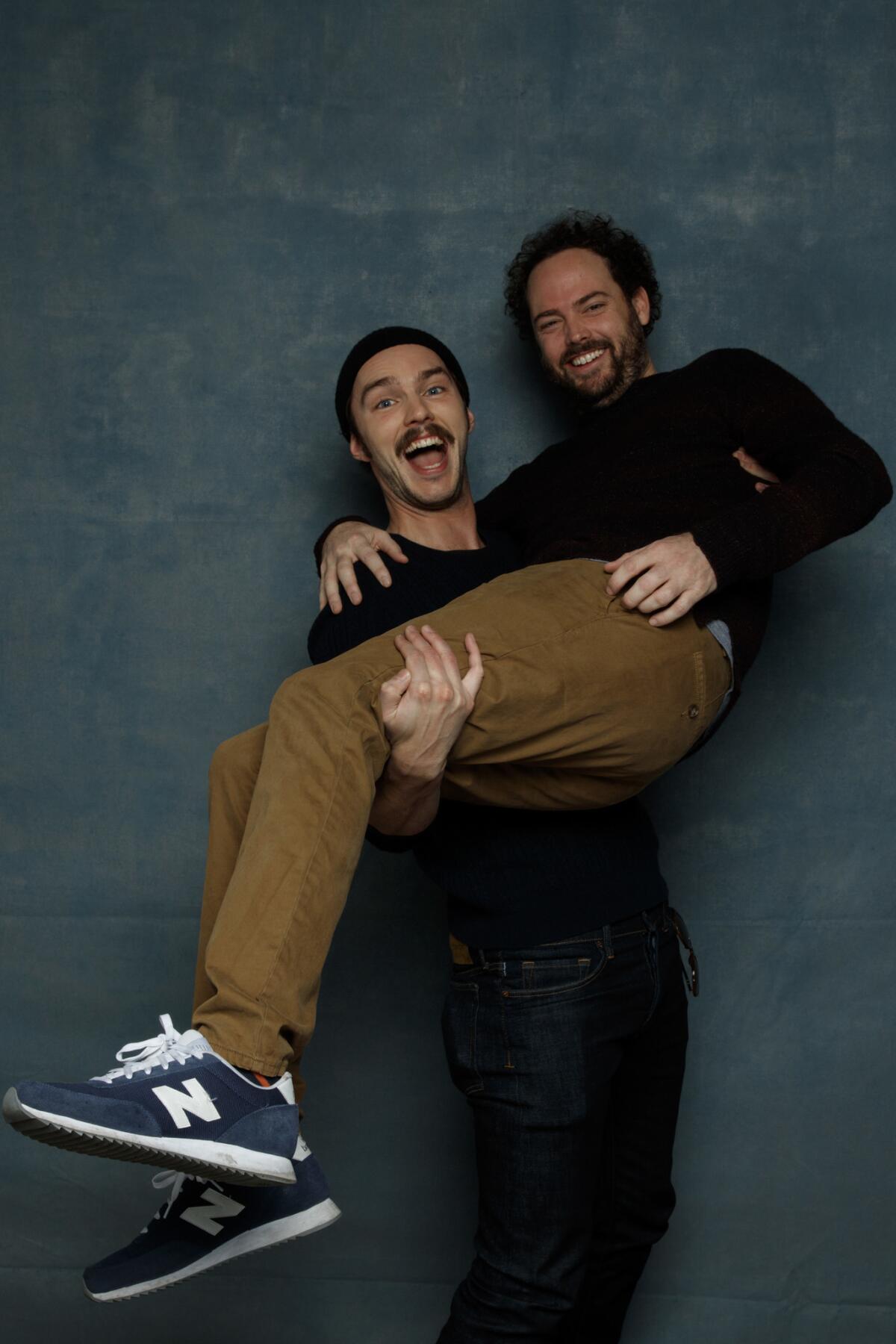
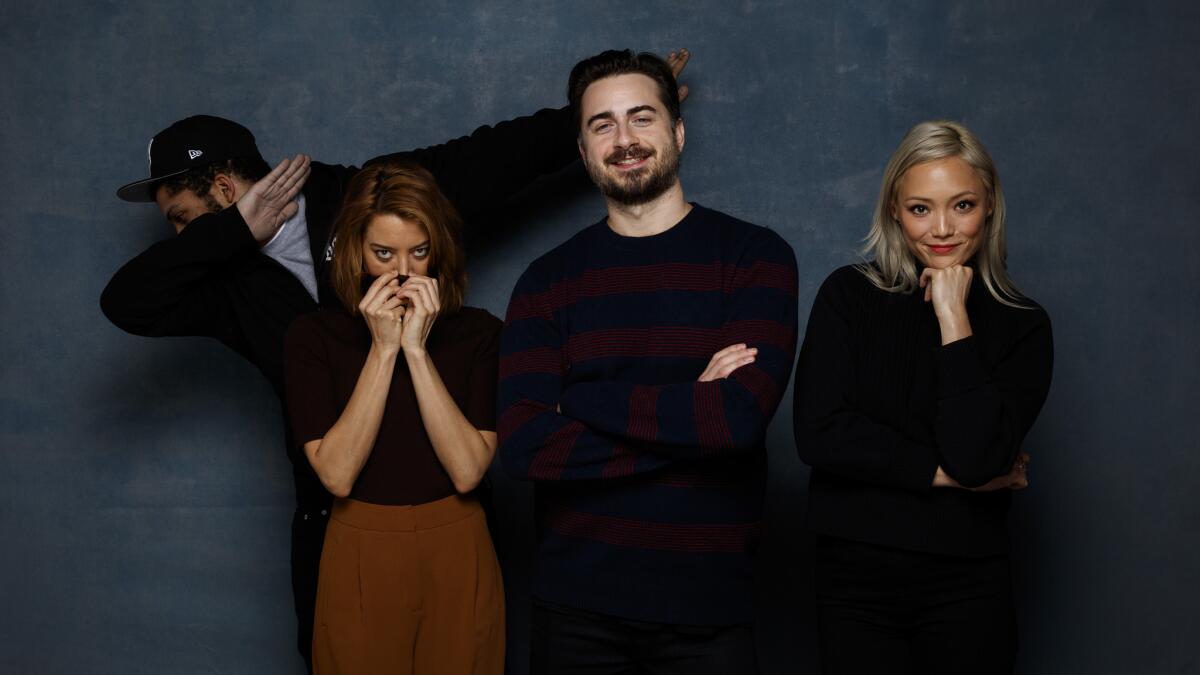
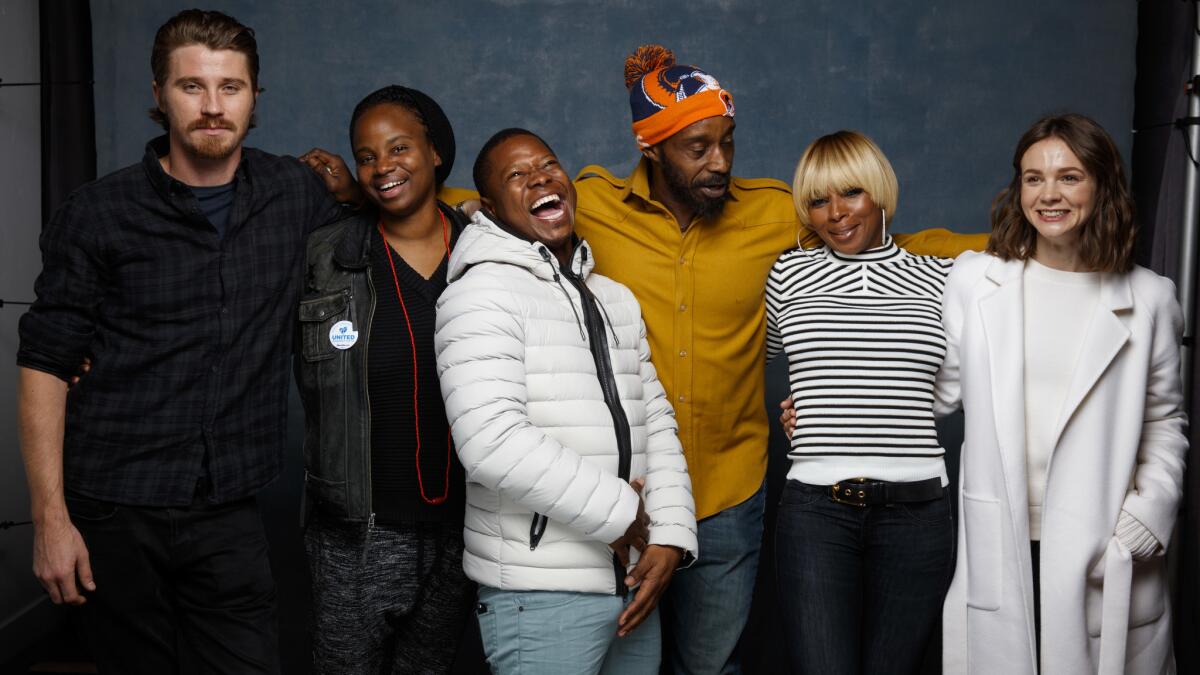
Criticâs Notebook: âThe Big Sickâ offers an early cure for the festival blues
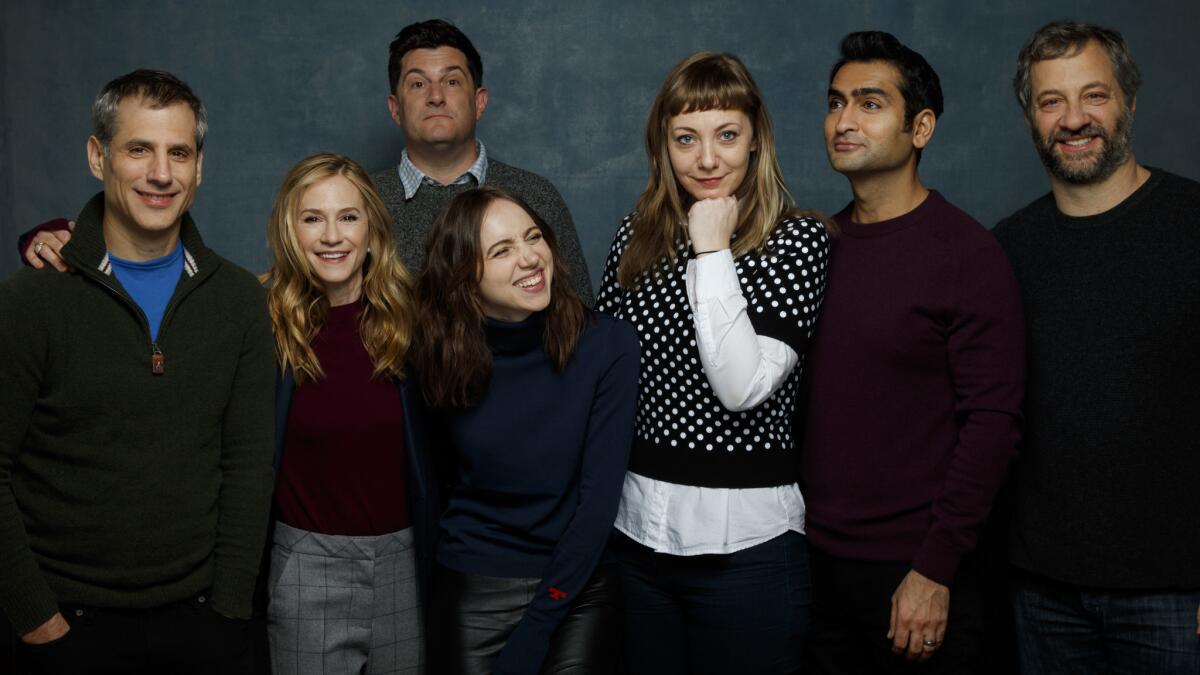
The Sundance Film Festivalâs early days may have been overshadowed by the one-two punch of Fridayâs presidential inauguration and Saturdayâs womenâs marches, but this 33rd annual edition has slowly but surely roused itself to life. The festival laid claim to its first major crowd-pleaser on Friday with the world premiere of director Michael Showalterâs âThe Big Sick,â an effortlessly funny and charming romance that subtly deepens into a moving portrait of cross-cultural, cross-generational bonds.
Acquired by Amazon Studios for $12 million after a heated bidding war, âThe Big Sickâ is drawn from the life of âSilicon Valleyâ actor Kumail Nanjiani, who stars as a younger (but present-day) version of himself. A Pakistani American man struggling to succeed as a stand-up comic in Chicago, Kumail has a very public meet-cute with a friendly heckler named Emily (Zoe Kazan). And so begins a relationship marked by startling emotional highs and lows, but mostly by a generous stream of laughter â and while Kumail may be a professional in that department, he wisely doesnât monopolize the jokes, as Emilyâs spiky sense of humor both matches and complements his own. (Nanjiani co-wrote the script with Emily V. Gordon, his wife.)
The involvement of producer Judd Apatow can be seen in the roundedness of the characterizations and the pleasing messiness of the movieâs emotional texture. But Nanjianiâs immigrant identity opens up an entirely new dimension of the Apatovian universe for him to colonize. In the movie, Kumail is too scared to break the news about his white girlfriend to his strict Muslim parents, who only want him to settle down with a nice Pakistani American girl.
Watching âThe Big Sickâ brought back memories of two recent projects that addressed the generation gap as it relates to Indian American families. Like Aziz Ansariâs character in the Netflix series âMaster of None,â Kumail is an aspiring entertainer trying to deal with his tradition-minded parents. And like the documentary âMeet the Patels,â âThe Big Sickâ holds up the culture of arranged marriages for detailed comic scrutiny.
Sundance and Will and Jada Pinkett Smith foundation team up
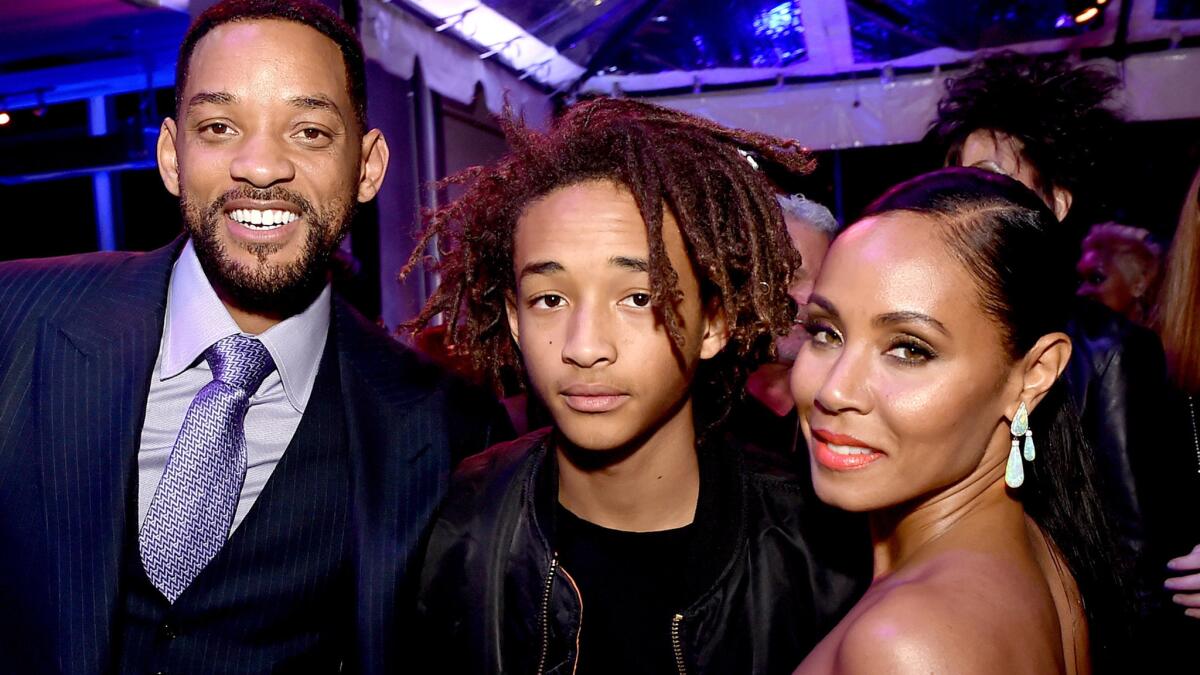
One of Sundanceâs stated goals is to increase diversity both at its festival and its talent-incubating labs.
That effort received a boost Sunday when the organization announced that the Will & Jada Smith Family Foundation would lend financial support the Sundance Instituteâs Screenwriters Intensive program.
The Intensive program offers a two-day workshop to a number of screenwriters from underrepresented communities, and also works with the Diversity Initiative. The grant has been set up for two years; the amount of the donation was not disclosed.
In a statement, Sundance Institute Executive Director Keri Putnam said that, with the help of the Smith foundation, âwe will build momentum and awareness about the need to create a film and media landscape that reflects the full richness and diversity of our culture.â
Jada Pinkett Smith noted that that the goal of the partnership was to âcultivate stories and storytellers reflective of the world at large.â
At a time when Hollywood has been criticized for a lack of minorities in many creative roles, Sundance has been a refreshing counter-example, both at the labs and the festival. This yearâs festival has seen a number of movies written by people of color, including two early breakoutsâthe Kumail Nanjiani-written âThe Big Sickâ and the Dee Rees- and Virgil Williams-written âMudbound,â which both premiered to strong receptions this weekend in Park City.
Sean Hayes and Todd Milliner on âThe History of Comedyâ

Sean Hayes and Todd Milliner, at Sundance for their documentary, âThe History of Comedy,â do some bits of their own in a sit-down with The Times. Video by Myung Chun / Los Angeles Times
Sean Hayes and Todd Milliner, at Sundance for their documentary, âThe History of Comedy,â do some bits of their own in a sit-down with The Times. Video by Myung Chun / Los Angeles Times
Diplo talks about celebrity culture in Cuba

Grammy-winning disc jockey, producer and songwriter Diplo comments on the lack of celebrity culture in Cuba, where he performed for the Sundance documentary, âGive Me Future.â Video by Myung Chun / Los Angeles Times
Grammy-winning disc jockey, producer and songwriter Diplo comments on the lack of celebrity culture in Cuba, where he performed for the Sundance documentary âGive Me Future. Video by Myung Chun / Los Angeles Times
Polaroid-style instant prints from the L.A. Times photo studio at Sundance
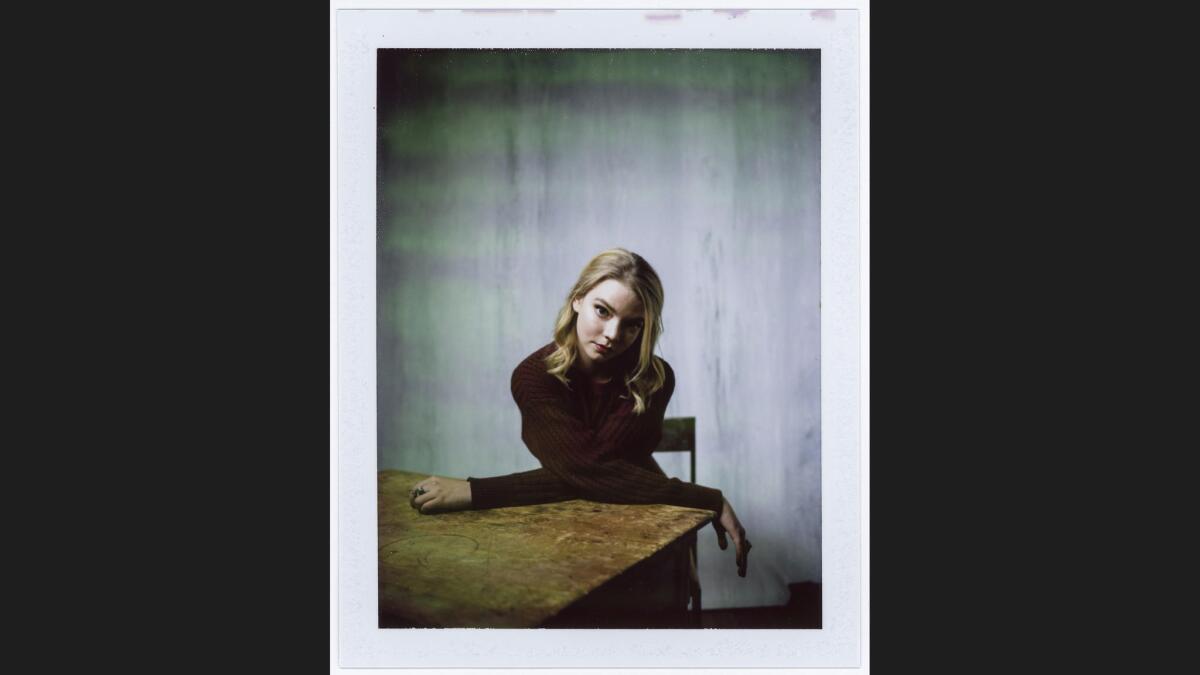
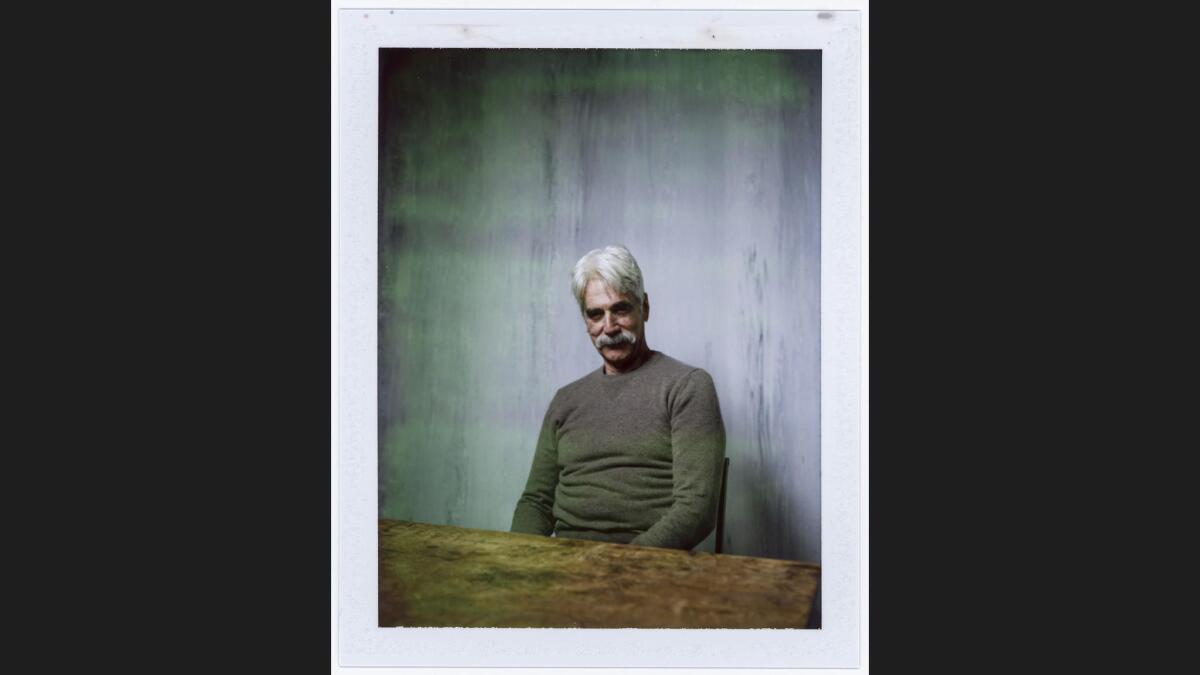
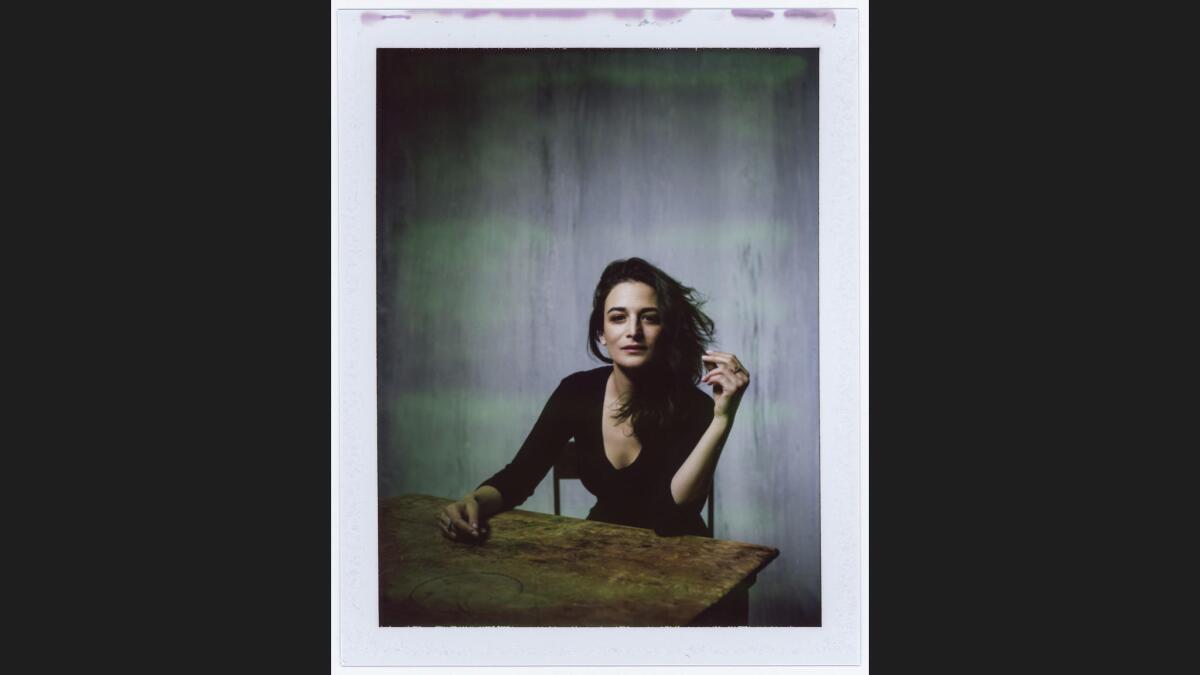
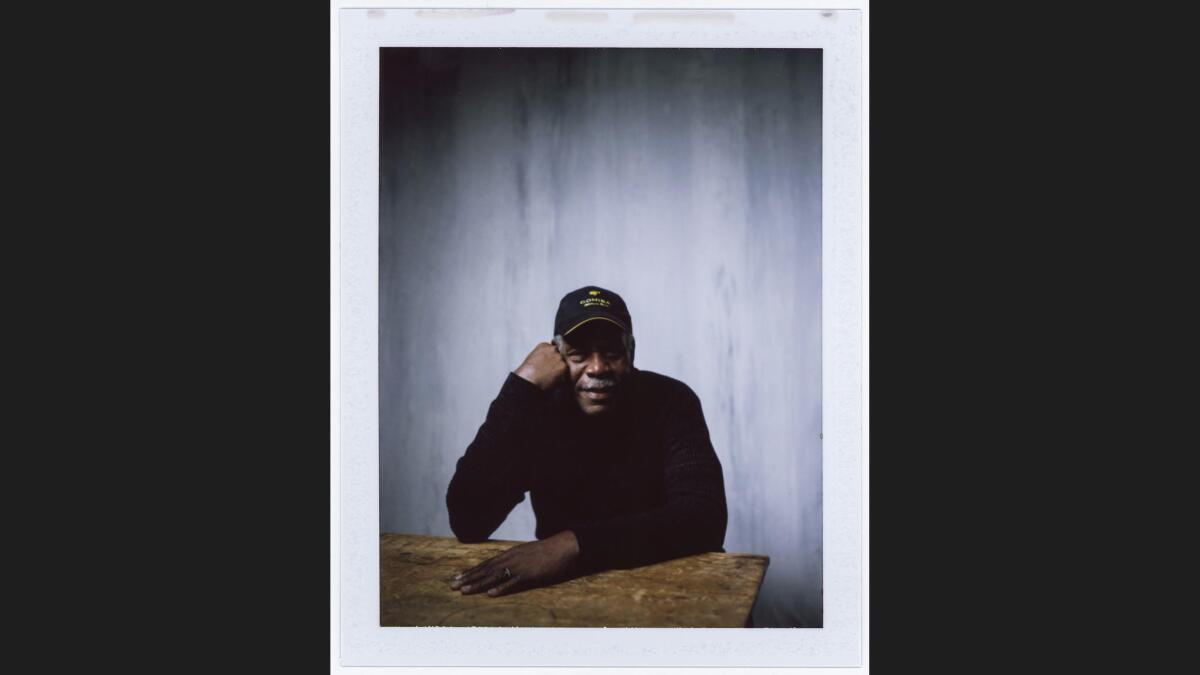
SEE MORE POLAROID-STYLE PORTRAITS FROM THE L.A. TIMES PHOTO STUDIO HERE >>
âThe Big Sickâ is a festival anomaly: the comedy of Judd Apatow with the tender drama of Sundance
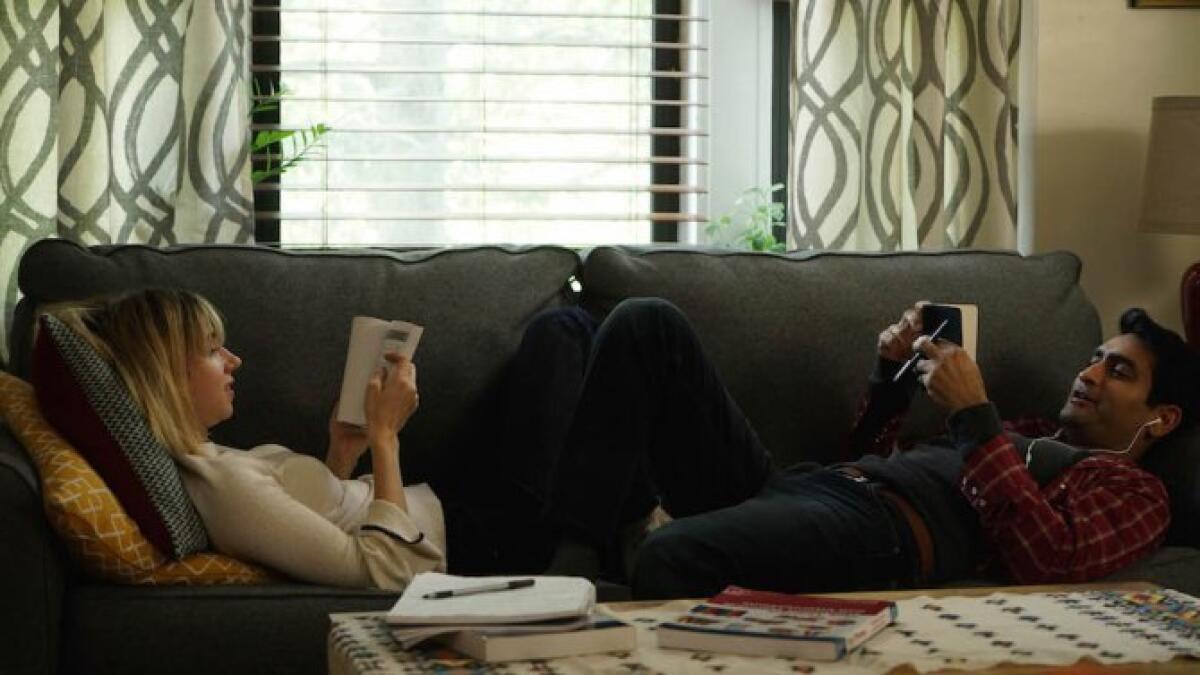
Not long into âThe Big Sick,â the new film produced by Judd Apatow, the lead character makes a choice one rarely sees in a mainstream U.S. comedy.
A young Pakistani Muslim visiting his parents for dinner tells them heâs going downstairs to pray, per their wishes. Then he heads to the basement, takes out a prayer mat, sets a timer for 5 minutes and does everything but pray before returning upstairs when the clock runs out.
Many comedies â and certainly many comedies under Apatowâs guiding hand â would play the scene for maximum (and likely raunchy) laughs. (In many comedies the lead character wouldnât be a Pakistani Muslim either, but thatâs another matter.) Yet a more serious tone percolates here. The son has given up tradition, but hardly happily, and thereâs something a little touching, even sad, about him having to conceal his choice.
The moment provides a signal early of a film far more interested in sympathizing with alternate points of view than in exploiting them for easy laughs. That idea is underscored later when the characters and his parents argue angrily about the assimilationist direction their sonâs life is taken â a scene youâd more likely find in a Salman Rushdie novel than the film of a man who made âKnocked Up.â
At Sundance, Hollywood stars rally against Trump: âThis is a new Americaâ
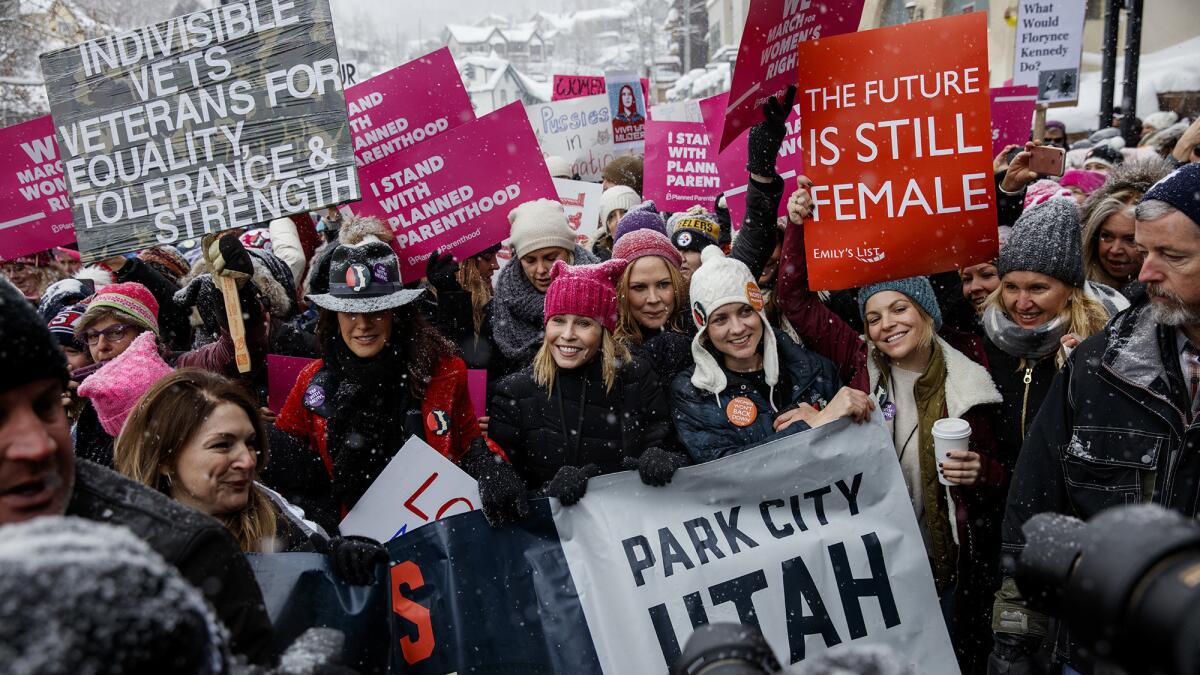
While Donald Trump spent his first full day as the president of the United States warring with journalists over inauguration attendance numbers, Hollywood stars in Utah for the Sundance Film Festival added their voices to the protests around the globe.
Led by comedian Chelsea Handler, an estimated 8,000 protesters flooded the mountain town of Park City, Utah, to voice their objection to Trump and call for solidarity â far exceeding the predicted turnout.
âTodayâs a beautiful day and nothing can take that away,â Handler told The Times on Saturday in Park City, and said she was determined to keep the momentum going after the Womenâs March on Main.
âThe only other option is fear,â she said, âand I wonât be fearful.â
Tom Brokaw: From the Trump inauguration to Sundance
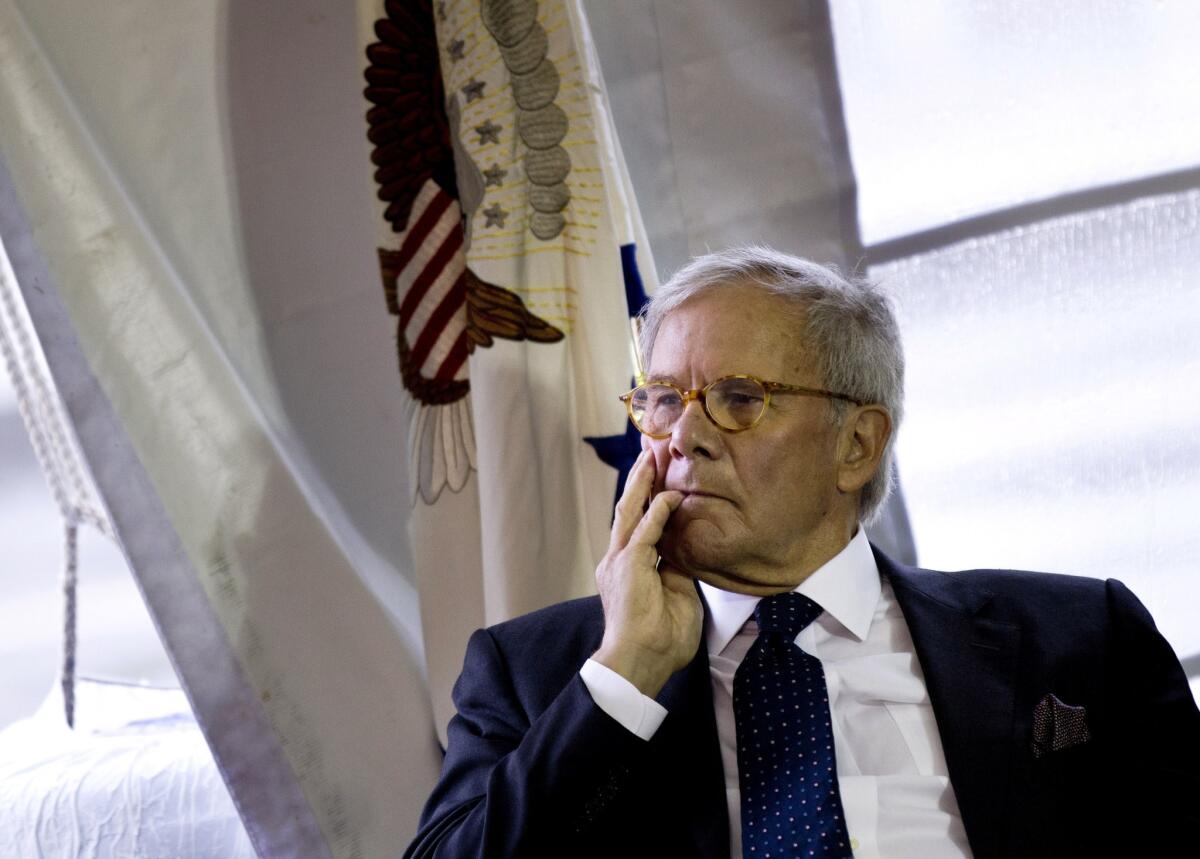
On Friday, Tom Brokaw was in Washington, D.C., helping to lead NBC Newsâ coverage of President Trumpâs inauguration. Less than 24 hours later â as thousands of women marched through the heart of Sundance mid-snowstorm to protest the new administration â the veteran newscaster touched down in Utah to promote a documentary.
Culture shock much?
âIâve been doing this for a long time, and that one was â to put it lightly â unique,â the 76-year-old said of the inauguration. âMost presidents who deliver State of the Union addresses try to do something that is lyrical, poetic and historically contextual. He did not. It was another campaign speech â which was his intention. Heâs going to run the White House as if his campaign never stopped.â
Sipping a Diet Coke, Brokaw had just traveled from the airport to a local Ruthâs Chris Steak House, where he joined David Zaslav, president and chief executive officer of Discovery Communications, and Rich Ross, president of the Discovery Channel, to discuss âRancher, Farmer, Fisherman.â Thatâs the new movie Discovery has at the festival, which explores three subjects who are finding sustainable ways to live off the land.
The film is part of the companyâs renewed focus to âstand up for the environment and animal extinction,â said Zaslav. After working with Brokaw for more than two decades at NBC, the executive reached out to Brokaw to see if heâd be interested in narrating the new documentary.
âAs the chronicler of the greatest generation â which, at its heart, was about people standing up for a greater good â I thought he was the perfect voice,â Zaslav said.
Brokaw, who has a ranch in Montana, has long been interested in environmental preservation. He was raised near large farming areas in South Dakota and grew up fishing on the Missouri River. And while heâs in Utah, heâs staying with Robert Redford, the festival founder who was largely responsible for the creation of this yearâs New Climate program focused on environmental films.
Brokaw said he agrees with documentaryâs overall message of conservation â advocating practices such as no-till farming â and believes that anyone who suggests we ought to stop eating animals or farming altogether is an extremist.
âThatâs crazy. Youâve gotta have a sustainable economy,â he said. âYou canât just say âweâre not gonna do that.â You have to have enlightened environmentalists who say we can have what we want, but we have to manage it more skillfully.â
âWeâre not trying to scare people,â Ross added of the film, which will air on the network in August. âWe look to educate or enlighten people and show them there are options. If you leave people hopeless, we are doing a tremendous disservice.â
Zaslav paused and leaned toward Brokaw. âTom,â he said, taking a serious tone, âwhen you think about the obligation of our generation â whether it relates to whatâs going on with animal extinction or whatâs going on with climate â what is the obligation and what is the path?â
âWhat I think we can do, having lived through what weâve seen,â Brokaw began, âis to say to [the millennial] generation: Look at the quality of life. You donât have to be abusive and use everything. The quality of life can be more satisfying to you emotionally and intellectually and even physically if you do something. You feel better if you do the right thing.â
As for Trump â who has said he believes climate change is a hoax â Brokaw remains hopeful the president may change his campaign stance on global warming. He said he maintained faith in Rex Tillerson, the former CEO of Exxon Mobil and Trumpâs choice for secretary of State, to say âitâs real.â
âI know him, and for a long time Exxon Mobil knew that global warming was real but did not surface it. He was the first CEO who said âitâs real, we have to do say that.â Thatâs very strong,â Brokaw said.
âOne of the things I learned early on is that at this stage in a new administration, itâs very hard to know for certain whatâs gonna happen,â he continued. âSo I developed something called the UFO theory: the Unforseen Will Occur. But [Trumpâs] gonna find getting in the Oval Office that heâs no longer on the campaign trail and he canât go out and say whatever he wants to.... He doesnât have a lot of currency at this moment. Heâs got the core group. Iâm saying this objectively. This is what heâs up against.â
On the cutting-room floor of the L.A. Times Sundance photo studio
Chelsea Handler and the womenâs march

Chelsea Handler says women should not have to fight for their rights all over again.
Chelsea Handler says women should not have to fight for their rights all over again.
Cyberattack shuts down Sundance box offices
The casts of âL.A. Times,â âStep,â âThe Little Hoursâ and more stop by the L.A. Times photo studio at Sundance
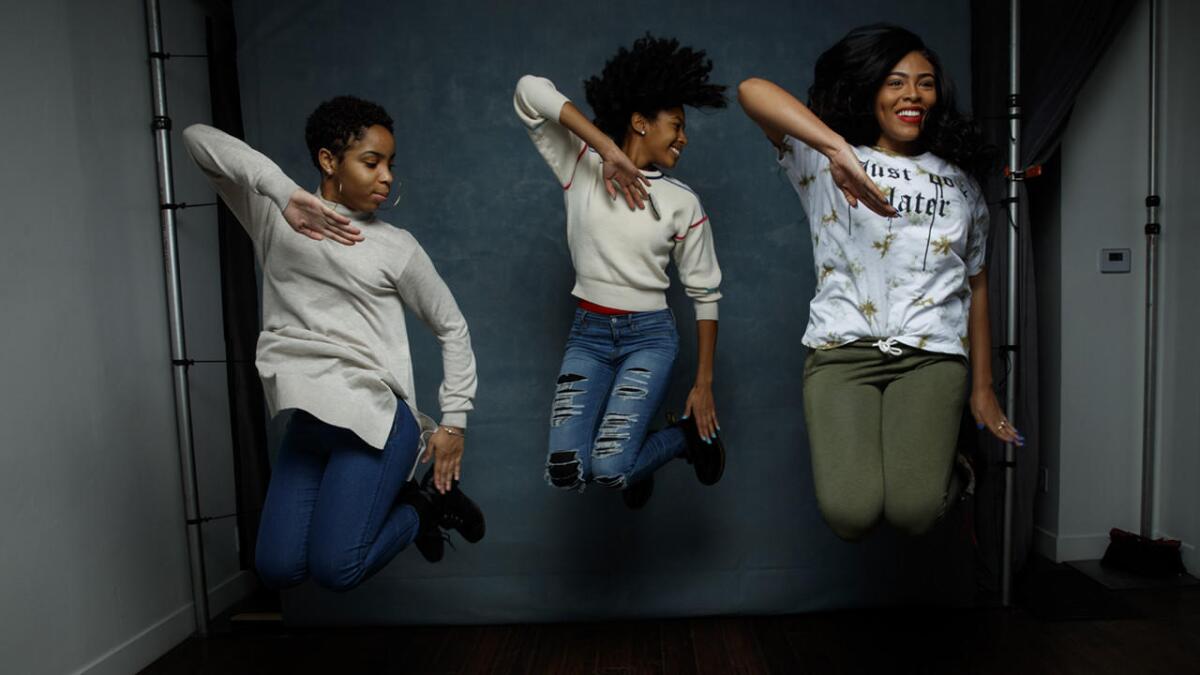
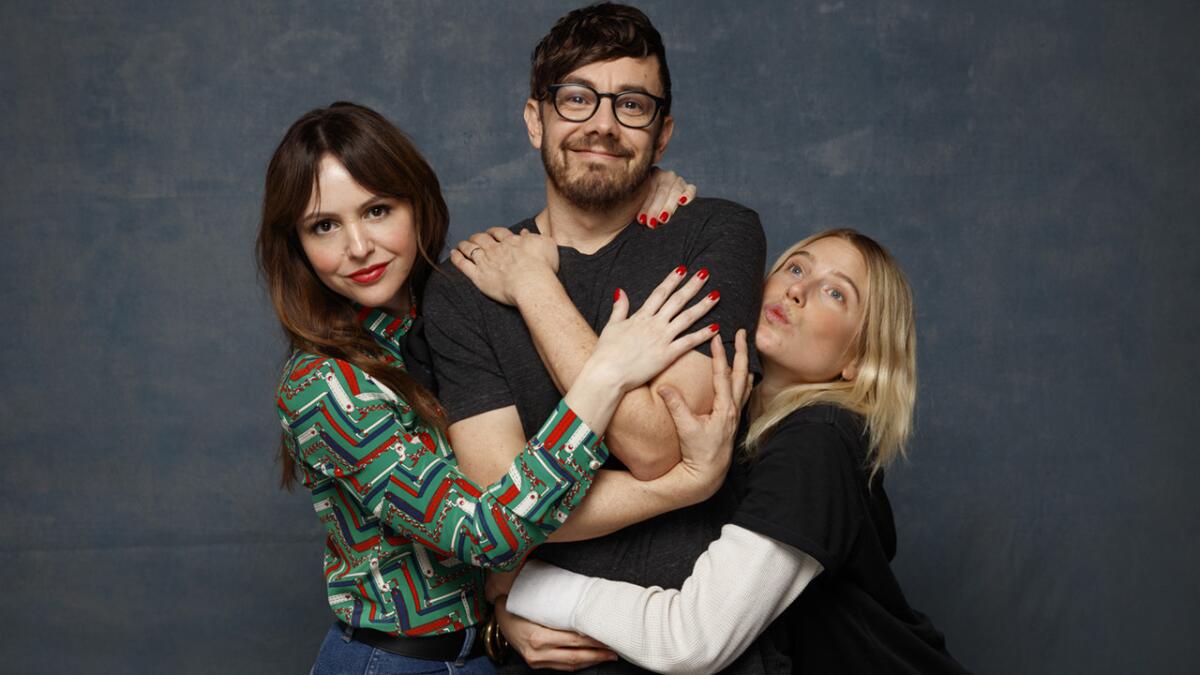

âL.A. Timesâ is a spiky portrait of romance in contemporary Los Angeles (and not the L.A. Times)
First things first. Yes, there is a movie at Sundance called âL.A. Times.â No, it does not have anything to do with this here media organization, the Los Angeles Times. (Trust me, when the festivalâs program announcement came out, there were some very quizzical looks around the newsroom, as if people were afraid they had been in a documentary and/or reality show without knowing it.)
Rather, âL.A. Timesâ is a look, at once both breezy and insightful, into the personal and professional intersections of a small group of people in the creative enclaves of Silver Lake, Echo Park and Los Feliz. The first feature film directed by Michelle Morgan, who also wrote the screenplay and plays the lead role, âL.A. Timesâ launches her as a multifaceted talent to watch.
The film had its world premiere on Friday night at Sundance as part of the discovery-oriented Next section. In the film, Morgan plays Annette, who impulsively breaks up with her boyfriend, Elliott (Jorma Tacone), and finds herself feeling adrift. At the same time, Annetteâs friend Baker (Dree Hemingway) has problems of her own as she juggles an affair with married man (Tate Donovan) and an increasingly complicated relationship with a cousin (indie stalwart Kentucker Audley, revealing himself as an unexpectedly credible romantic leading man). The supporting cast includes Margarita Levieva, Adam Shapiro, Angela Trimbur. Robert Schwartzman and Nora Zehetner.
Sundance filmmakers and local businesses steel for womenâs march
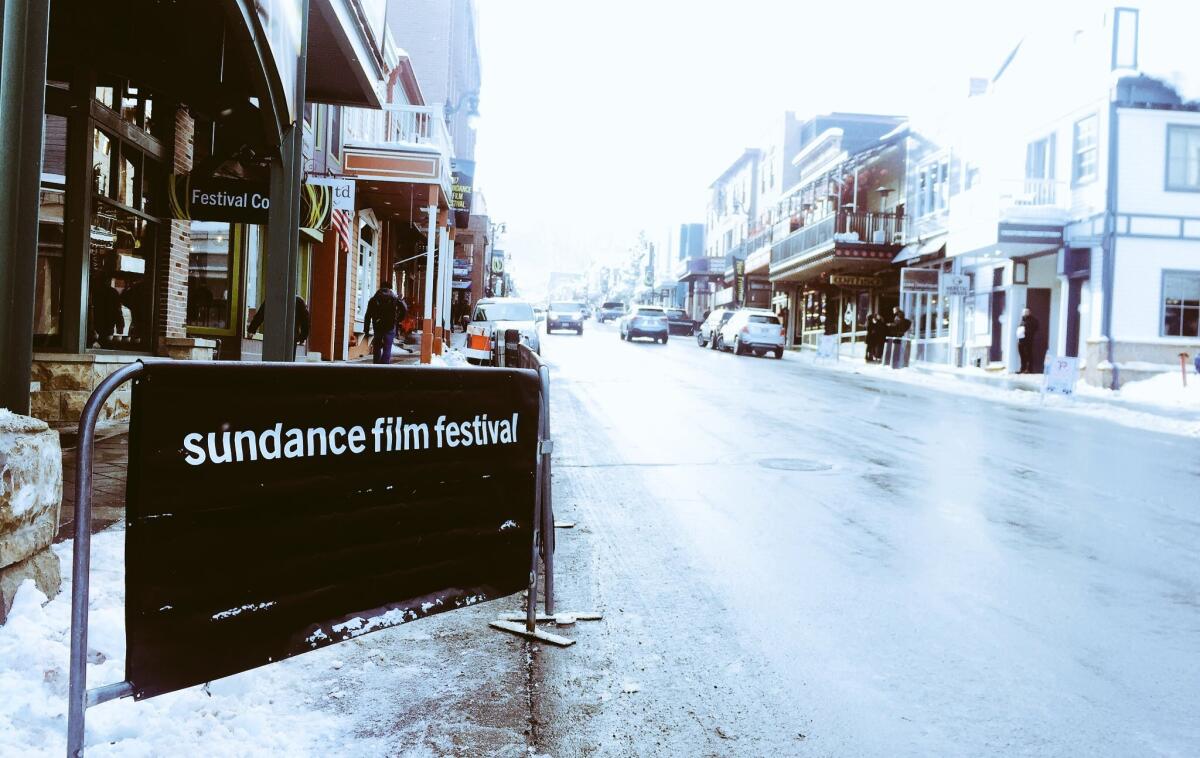
âEight years ago was an amazing day,â said Emmy-winning film producer Julie Goldman (âLife, Animated,â âWeinerâ) on a palpably subdued inauguration morning at the Sundance Film Festival. âToday is the opposite.â
Sundance veterans can vividly recall Inauguration Day 2009, when attendees of the prestigious annual film festival put the movies on pause, gathered in the snow-covered streets of Park City, Utah, and squeezed into viewing parties to watch Barack Obama get sworn in as the 44th president of the United States of America.
Friday morning at this yearâs Sundance, no such celebration greeted the anointing of President Trump.
âThereâs a cloud hanging over the festival in general. Everyone is down,â added Oscar-winning filmmaker Roger Ross Williams, who directed the Oscar-shortlisted documentary âLife, Animated,â about a family using movies to communicate with their autistic son.
âLandlineâ doesnât connect, but âNovitiateâ is worthy of praise
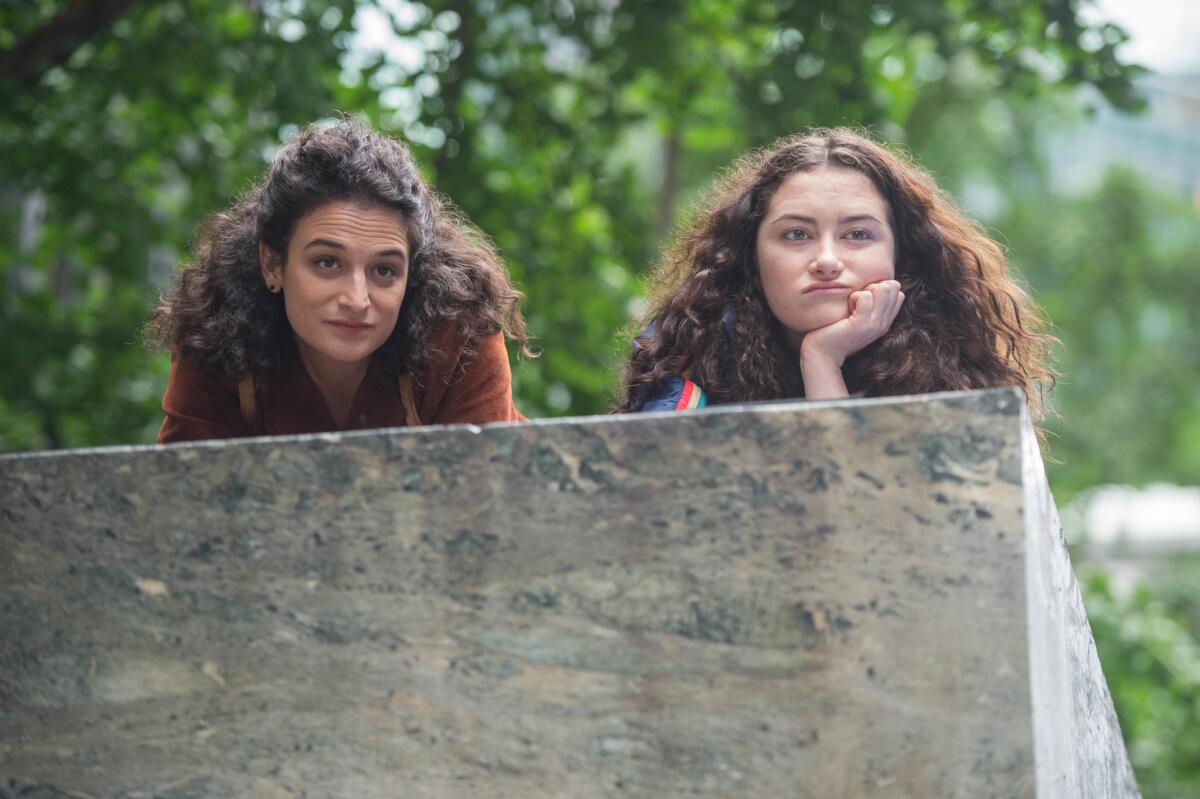
âThe inauguration is over, so you can turn off your cellphones!â
That was the Sundance Film Festivalâs director, John Cooper, introducing the Friday afternoon screening of Gillian Robespierreâs new comedy, âLandline.â For those of us who chose to bury ourselves in movies rather than pay attention to the events transpiring across the country, the mention of the inauguration jolted us briefly back to reality â a needle puncturing our cozy Hollywood bubble, if you will â shortly before the lights dimmed and a fresh distraction took over the screen.
Reactions to the inauguration seemed fairly muted in Park City, at least from this observerâs admittedly limited, partly scarf-concealed vantage. Rather than cheer, jeer or laugh in response to Cooperâs mention, most of us simply followed his instructions and put our cellphones away â a fitting enough way to ease oneself into a movie called âLandline.â In this 1995 nostalgia-fest, a Manhattan family must rely on floppy disks and mixtapes to make their way through a gauntlet of dysfunction and bad decision-making. (More political reminders: At one point, the characters watch Hillary Clinton delivering her âWomenâs rights are human rightsâ speech in Beijing, though mostly they just admire her pink pantsuit.)
Chelsea Handler, Jessica Williams, Aisha Tyler and others take the stage at the womenâs march at Sundance
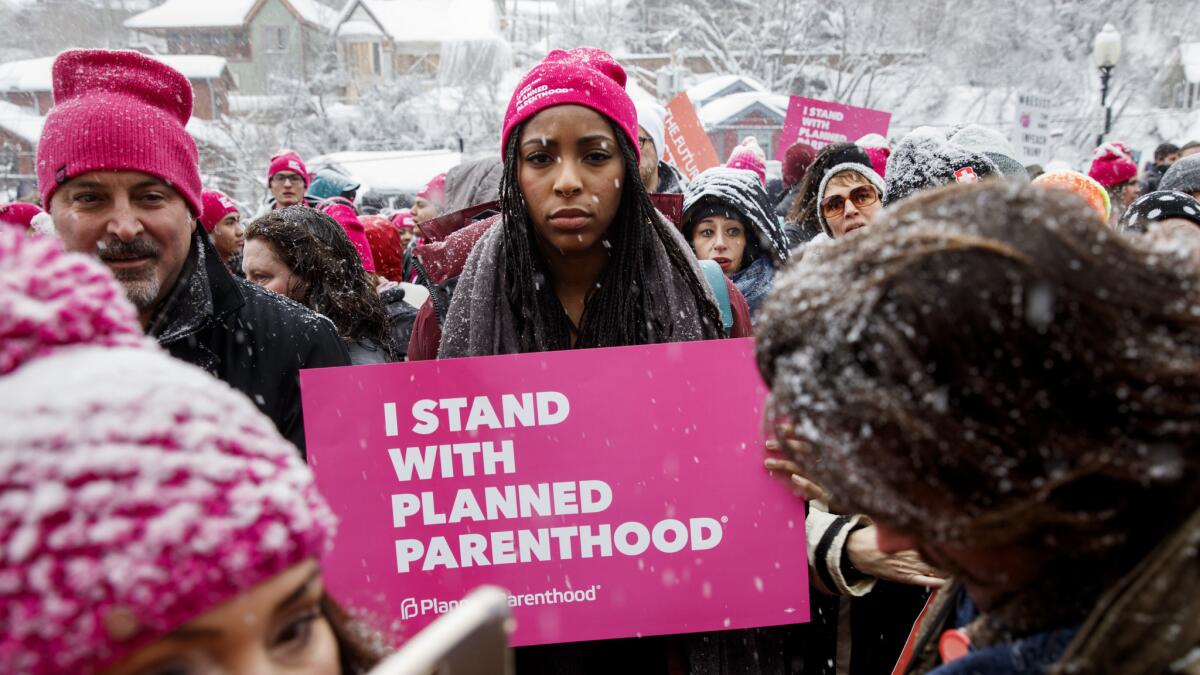
Neither the snow nor the possible conflict with Robert Redfordâs private brunch stopped Sundance filmmakers from participating in the womenâs march at Park City, Utah.
Led by comedian Chelsea Handler, the independently organized event featured speeches by filmmakers, local politicians and activists, including Aisha Tyler, Jessica Williams, Dolores Huerta and Maria Bello.
âItâs not 1917; itâs 2017,â said Handler as she addressed the crowd gathered for the rally. âWho knew we had to fight for progress we already had?â
Tyler paid homage to previous activists in her remarks.
âIf people felt despair during slavery, suffrage, Jim Crow and Stonewall, we wouldnât have changes we have today,â she said.
Huerta, who was attending Sundance to attend the premiere of âDolores,â a documentary about her life, was greeted by chants of âSi se puedeâ as she took the stage, while Bello gave a shout-out to Meryl Streepâs Golden Globes speech.
âI am Jessica Williams. I am black, and I am a woman. ... Williams is my slave name,â the actress said in her speech that recognized her ancestors who âfought for me to stand here today, in front of a bunch of white people wearing Uggs.â
See more images from the event below.
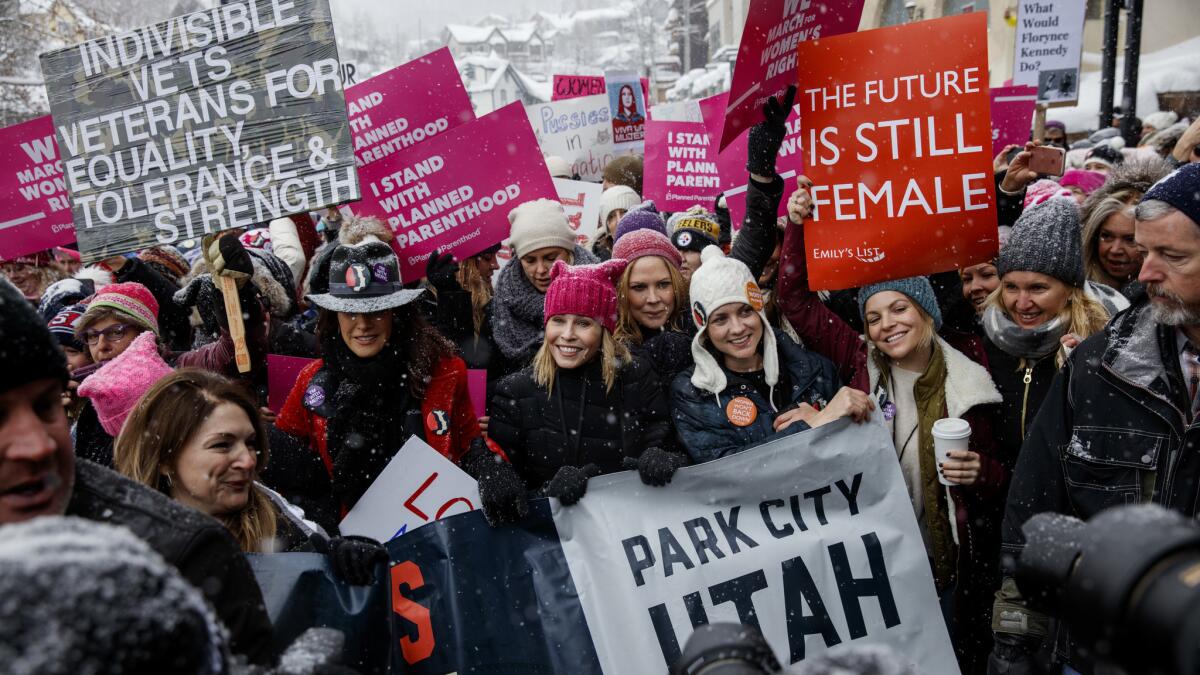
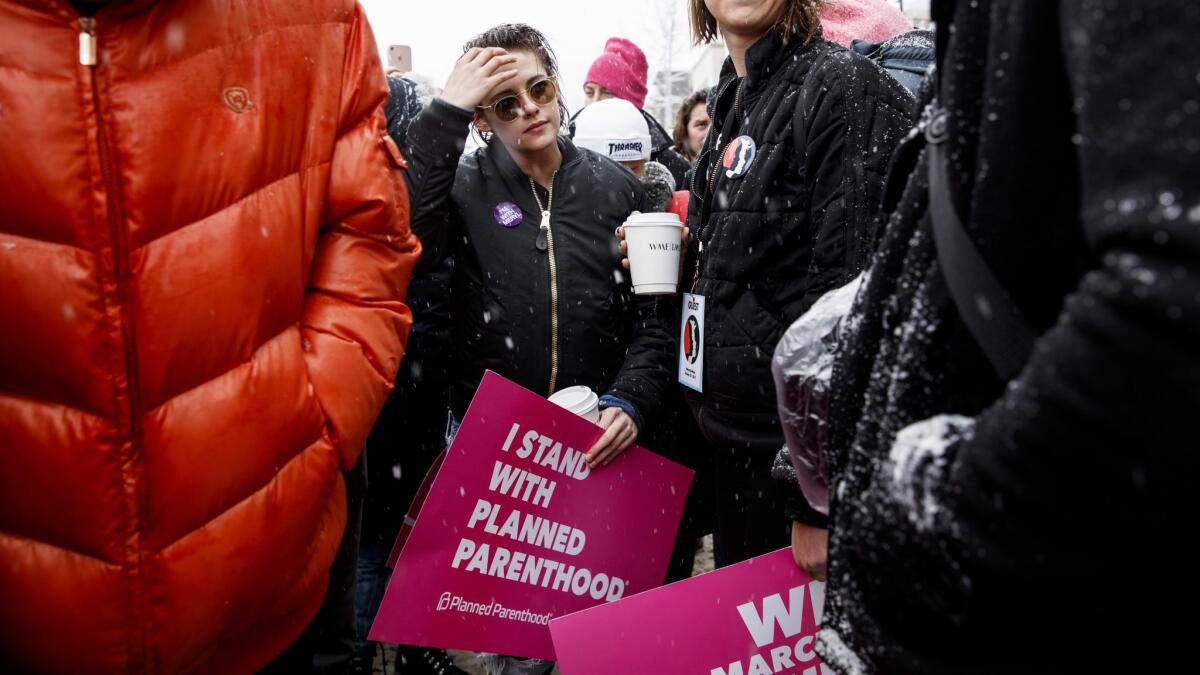
Watch the womenâs march at Sundance
Chelsea Handler, Kristen Stewart, Charlize Theron and more were among the Sundance filmmakers spotted at an event dubbed the Womenâs March on Main in Park City, Utah. Check out video from the march above.
Instant prints from the L.A. Times photo studio at Sundance 2017
âStepâ routine rocks Timesâ photo studio

The young women in âStepâ demonstrate a routine at the L.A. Times photo studio during the Sundance Film Festival. The documentary is about senior girls in a Baltimore high school step team as they prepare to be the first in their families to attend
The young women in âStepâ demonstrate a routine at the L.A. Times photo studio during the Sundance Film Festival. The documentary is about senior girls in a Baltimore high school step team as they prepare to be the first in their families to attend college.
Portraits from the L.A. Times photo studio at Sundance 2017
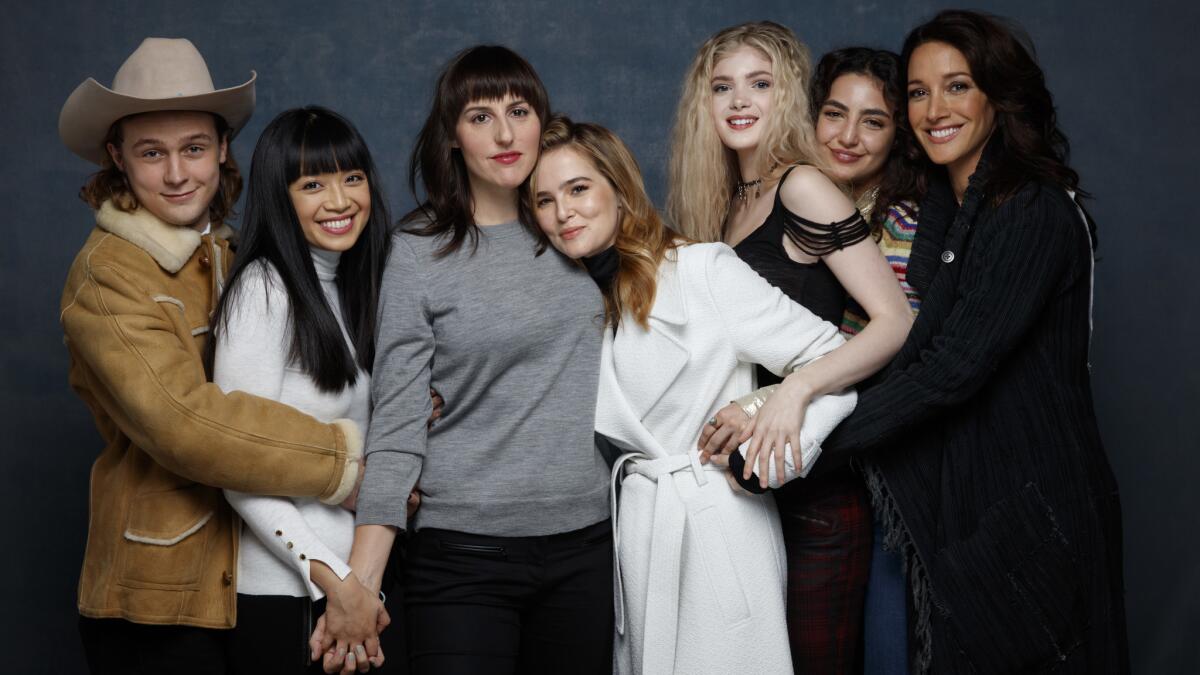
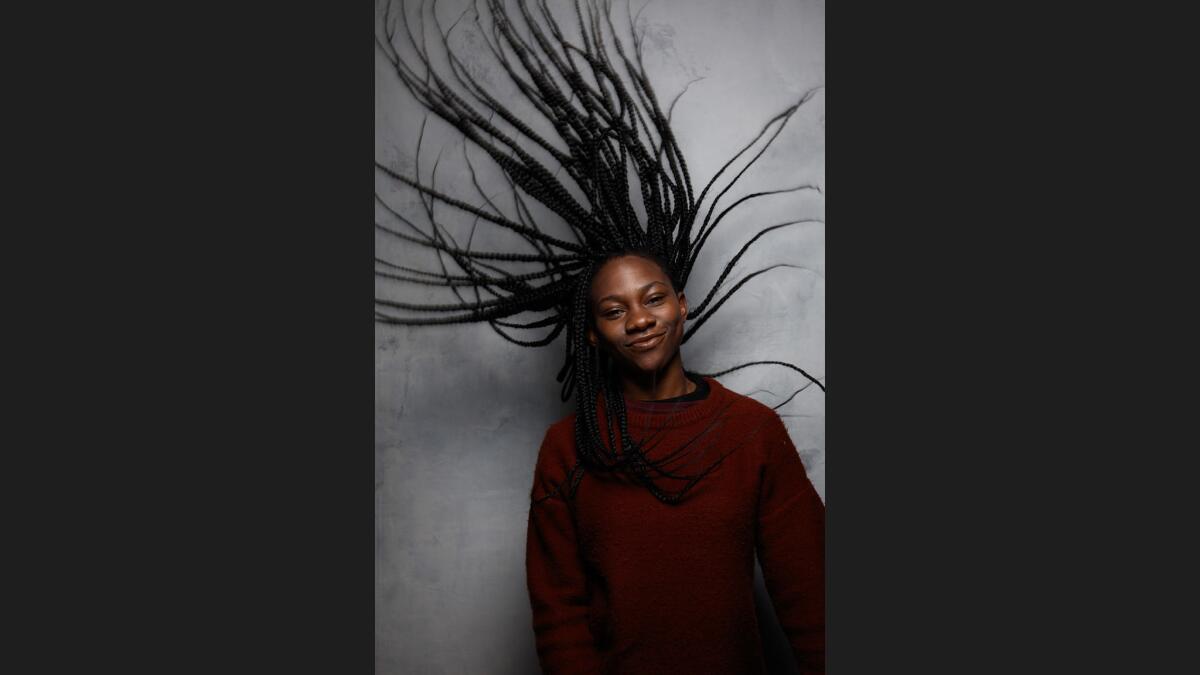

Documentary provocateurs say Trump presidency is also a time for reconciliation
Documentary filmmakers can be among the most politically provocative â and often Democrat-friendly â of all show business subsets.
But on a day when many in media and entertainment registered objections to new President Donald Trump on social media, nonfiction filmmakers took a more kumbaya stance at the Sundance Film Festival.
âAfter the election we all had to take a closer look at what weâre doing and the responsibility we have,â said filmmaker Jason Cohen, speaking with colleagues on a panel titled âA More Perfect Patriotâ on Inauguration Day at the festival.
Cohen, whose Oscar-nominated short âFacing Fearâ involves the meeting between a neo-Nazi and his victim 25 years after the attack, said that he was conflicted about the role of art at this crucible moment. âFor me it was looking at these amazing films for years and say âlook where itâs gotten us.â On the other hand we need these films.â Then he added, âWe need films that bridge a little bit and donât just preach to the choir in this room.â
The panel, moderated by documentary programmer Thom Powers, covered a range of creative and topical issues. When he asked the group how the Trump election has affected their thinking and their work, they took an attitude that was less to-the-barricades and more to-the-olive branch.
Keith Maitland, who directed the gun-violence doc âTower,â on this yearâs Oscar shortlist, said that he was seeking the long view too. âIn the last 48 hours, with all the talk about privatizing public broadcasting and abolishing the NEA, those are things I take personally as a filmmaker and as a citizen,â he said. âBut as frustrated as some people are about the ascension of Trump, and as satisfied as some people are in the new direction, weâve been here before and weâll be here again.â
Kiran Deol, the actress and filmmaker known for the Oscar-nominated short âWoman Rebel,â said that after the election she was struck by the level of personal offense people took on both sides of the aisle. âHow do you have control of a set of emotional circumstances because that isnât the place you can do anything effective?â she said she asked herself. âHow will you impact people once you stop yelling? I became acutely aware of how damaging anger can be ⌠it redoubled my interest in finding a way to bridge the divide.â
Among the more political words came from director Jehane Noujaim, who chronicled the Egyptian revolution in the Oscar-nominated âThe Square.â âLiving with Trump and Brexit it really has you thinking,â she said when asked about the meaning of the word âpatriot.â âThatâs why I like this term global patriotism,â she said alluding to a new project on the subject. âItâs not just people from [here].â
But even when skeptical about Trump supporters, the panelists offered a conciliatory message. Razan Ghalayini, a doc director and field producer on âFull Frontal With Samantha Beeâ described an encounter with a tea party activist who had had Trump sign his copy of the Constitution.
Though she was thrown by the gesture -- and alluded to her hope that Trump did not remain president for the full four-year term- - she said she found meaning in the gesture and the moment generally. âIt forces everyone to find common ground,â she said. âYou canât paint [political opponents] as the bad guy because you are them.â
Kristen Stewart on directing âCome Swimâ: âIâm not trying to prove anythingâ

WATCH: Kristen Stewart talks about the free-form aspect of making her short film, âCome Swim,â which screened at the 2017 Sundance Film Festival.
Kristen Stewart enjoyed the free-form aspect of making her short film, âCome Swim,â which is showing at the Sundance Film Festival. She doesnât see that as a directorial steppingstone to full-length features.
Dolores Huerta: âI think most of us in the progressive world feel very threatened right nowâ
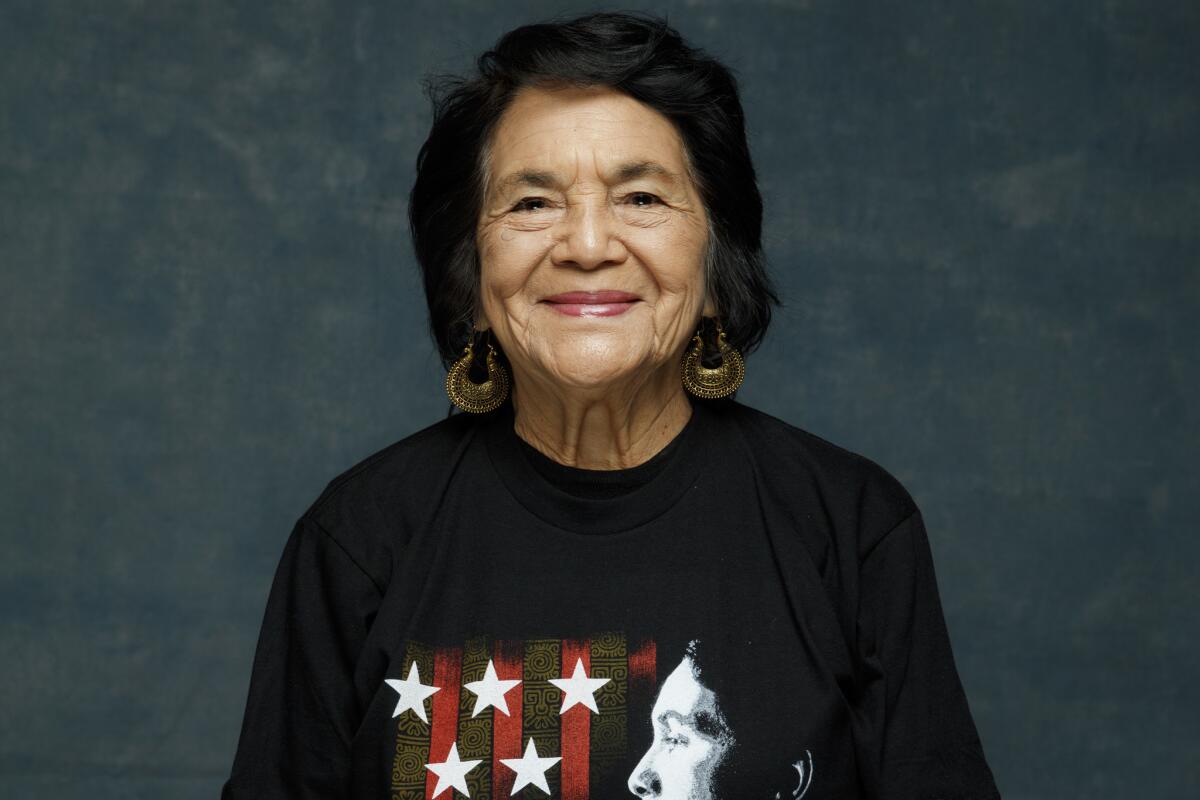
At 86, Dolores Huerta has been working as a civil rights activist for over six decades. But if you think sheâs ready to put down her bullhorn and hit the links, youâve got it all wrong.
âAll this work that has to be done,â said Huerta, who co-founded what would go on to become the United Farm Workers, âas long as I have health and energy, Iâm just gonna keep on doing it.â
Dressed in a Hillary Clinton-esque cherry red dress suit, the octogenarian was making her way through the snow Friday morning, hours before a documentary about her life â simply titled âDoloresâ â was set to premiere. On Saturday, Huerta will speak at the local Womenâs March being led by Chelsea Handler, though she said she has yet to plan her remarks.
âI usually am very spontaneous,â she said, adding that she was initially slated to speak at the march in D.C. before âDoloresâ was accepted into the festival. âI try not to repeat what other speakers are saying so I donât get redundant. I want to feel what the appropriate message will be at that moment.â
Participating in the March is particularly important to the Bakersfield resident, who feels âorganizing at the grassroots level is the key to everything, basically.â If the new administration makes good on its plans to defund Planned Parenthood and the Affordable Care Act, there will be even more reason to protest, she said.
âI think most of us in the progressive world feel very threatened right now,â said Huerta, who opted not to watch the inauguration. âAnd I think all of us are hoping that somehow we will be able to reach [Donald Trumpâs] heart. Once heâs in that position, maybe he will start getting some consciousness and some compassion. I hope he sees all of these protests across the country as a message and not just a criticism.â
Tools of the trade at the L.A. Times photo studio at Sundance 2017
âAn Inconvenient Sequelâ marks a welcome return to the spotlight for Al Gore
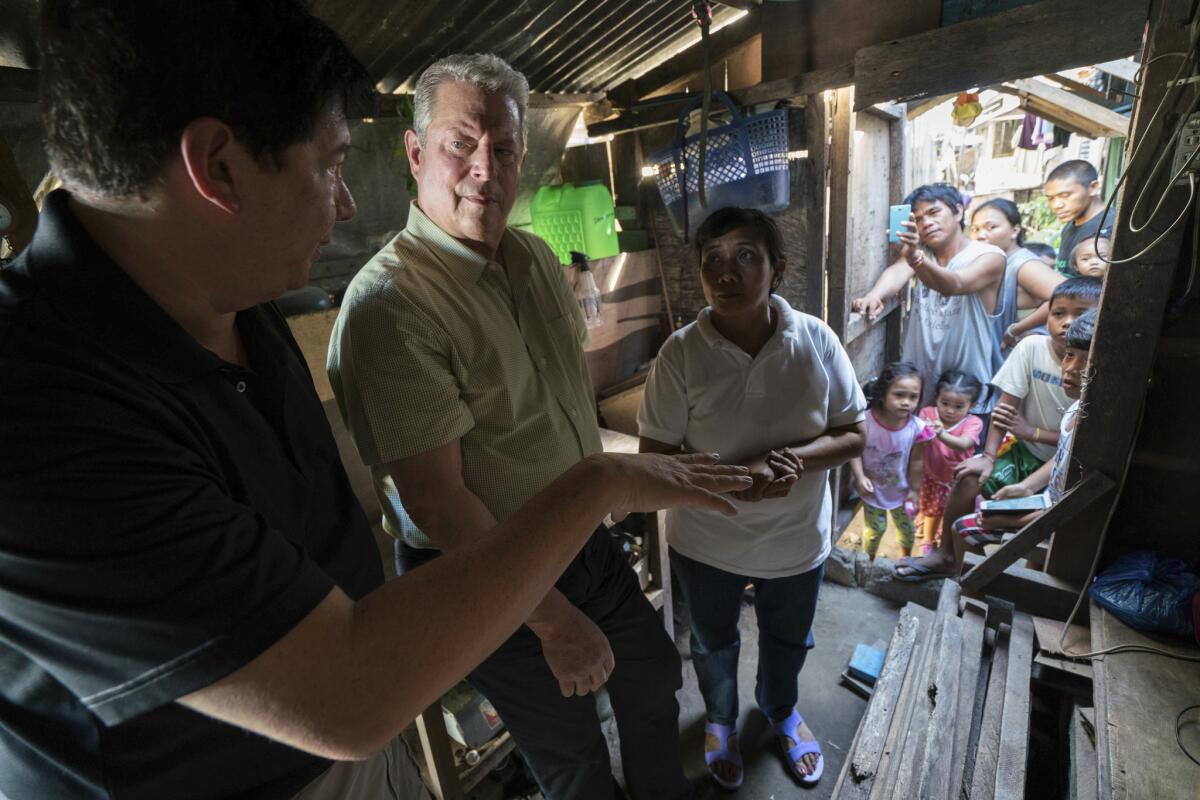
Amid all its grim revelations of melting ice caps and depleted permafrost, the Oscar-winning documentary âAn Inconvenient Truthâ provided at least one genuinely thrilling revelation: Al Gore was a movie star.
Long derided for his stiffness and lack of charisma as a politician, the former vice president and failed presidential candidate had discovered his true calling as an evangelist for planet Earth, with a PowerPoint pulpit and a sermon full of depressing statistics. In âAn Inconvenient Truth,â which first screened at the 2006 Sundance Film Festival, Gore took to his crusader role with the ease and conviction of someone who had nothing to lose, in part because he knew how much we all did.
Eleven Sundances later, Goreâs star wattage seemed entirely undimmed at Thursday eveningâs premiere of âAn Inconvenient Sequel: Truth to Power,â an awkwardly titled, stirringly crafted follow-up that measures the progress that has and hasnât been made in the battle against global warming. Taking over for Davis Guggenheim, the directors Bonni Cohen and Jon Shenk largely abandon the framing device of Goreâs lecture (which he and his international team of trainees continue to give regularly) in favor of a nimbler, more on-the-go approach.
Despite some updates on the continuing decline of the worldâs glaciers and the link between climate change and the recent Zika virus outbreak, the focus this time is less on science than on politicking. Cohen and Shenk tag along with Gore on a globetrotting mission to persuade various heads of state to invest in wind and solar energy and reduce their reliance on fossil fuels â an effort that culminates on-screen with the signing of last yearâs historic Paris climate accord.
Environmental documentaries have, of course, become a veritable cottage industry in the years since âAn Inconvenient Truth.â This yearâs edition of Sundance alone will unspool several in a new section called the New Climate, including Marina Zenovichâs âWater & Power: A California Heistâ and Jiu-liang Wangâs âPlastic China.â Next to all the competition, itâs Goreâs personality â something that he was once mocked for not possessing â and his personal history that give this ongoing cinematic project its particular gravitas. At 68, he may be grayer and paunchier, but the image he projects of an assured, steely intellect wrapped in that warm Tennessee drawl seems all the more indelible and authoritative.
More vital dispatch than great cinema, âAn Inconvenient Sequelâ made undeniably strong counterprogramming on the eve of Donald Trumpâs presidential inauguration, not least because of its poignant reminder that Hillary Clinton was not the first Democratic presidential candidate to win the popular vote but lose the election. While the film duly honors the role that President Obama and Secretary of State John F. Kerry played in negotiating the Paris accords, Trump is treated as a mocking presence on the sidelines, dismissing the importance of climate change â and then suddenly, alarmingly ascending to power in the movieâs climactic stretch.
âWe will win,â Gore told the crowd during the post-screening Q&A, to thunderous applause. I admit, after 99 minutes of explanations of freak weather patterns and the hottest year on record that was 2016, it was a relief to step out into the chilly Utah air and be comforted, if only for a moment, that the man might be right â and that we might yet live to see still another âInconvenientâ sequel.
Judd Apatow: âI have zero optimismâ about Trump presidency
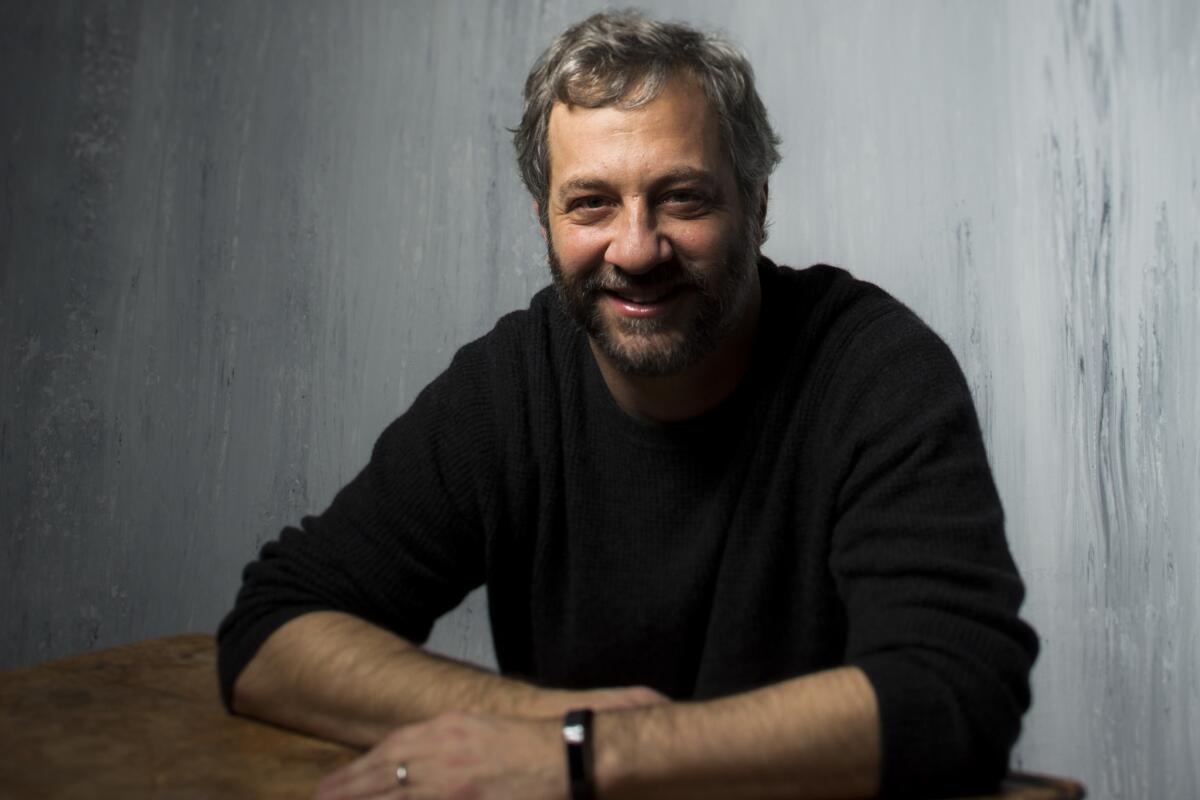
If you follow filmmaker Judd Apatow on Twitter, you know heâs no fan of our new president.
After a restless night, Apatow made the rounds here Friday morning just as the inauguration got underway, helping to promote a new movie he produced called âThe Big Sick.â
âIâm happy I have a full schedule,â he said, noting the timely nature of his new comedy, which explores the cultural differences between a Pakistani-born Muslim and his girlfriend, an American graduate student.
Not that Apatow was likely to tune into the D.C. proceedings, anyway.
âI have zero optimism,â he said of the new administration. âI donât trust these people, and I think that we all have to be on top of it every step of the way or bad things are going to happen.â
Moving forward, Apatow said he plans on putting his energy into helping the American Civil Liberties Union and other organizations that combat voter suppression.
âMost people donât realize that this happened because people didnât vote,â the filmmaker said. âIf people register and get organized, a lot of this goes away at the midterms. But people should start working on that now.â
Al Gore on Donald Trump: âNo one person can stopâ climate change movement
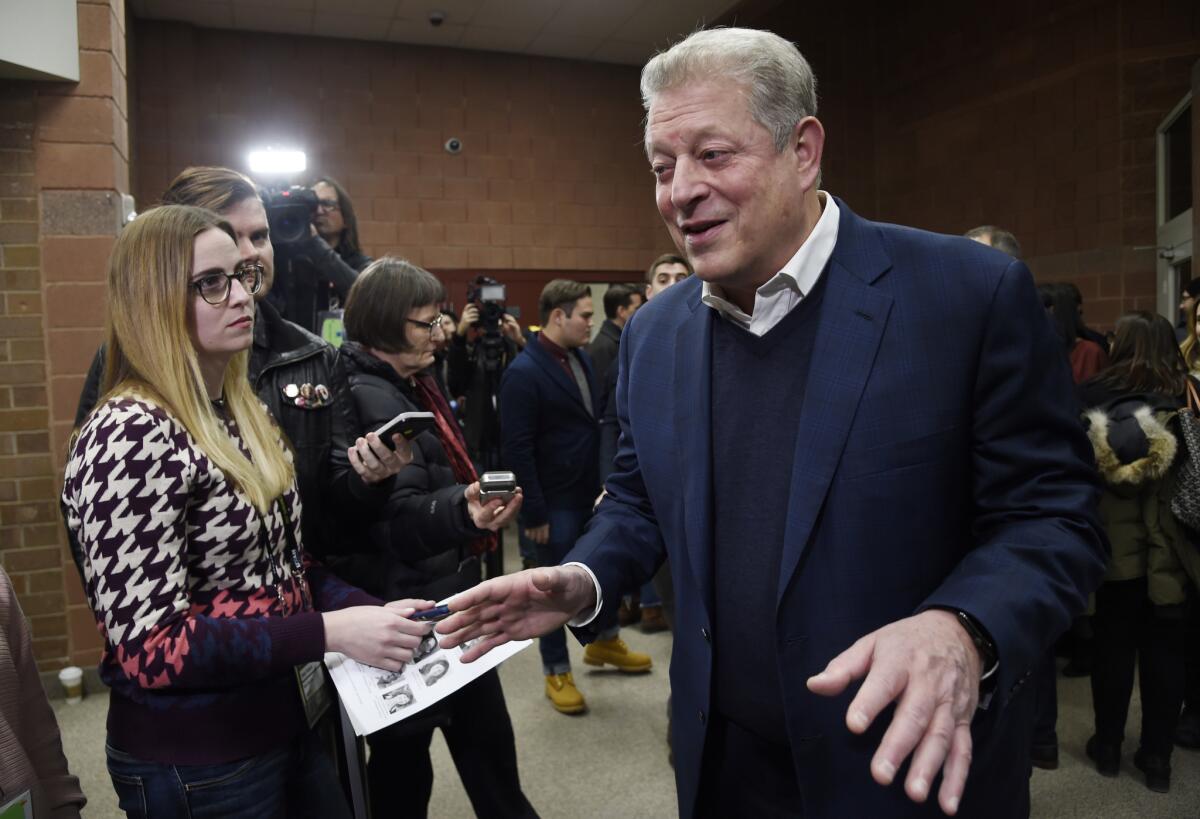
On the eve of Donald Trumpâs presidential inauguration, Al Gore told a crowd at the Sundance Film Festival that he remained optimistic about making progress on climate change -- even if Trump didnât believe in global warming.
Former Vice President Gore spoke to more than 2,000 filmgoers here Thursday evening, where a sequel to his 2006 documentary âAn Inconvenient Truthâ kicked off this yearâs annual festival. The film, co-directed by husband-and-wife Jon Shenk and Bonni Cohen, is part of âThe New Climate,â a Sundance program launched this year devoted to stories about the challenges facing our planet.
After the screening, which was attended by environmentally minded filmmakers Louie Psihoyos (âThe Coveâ) and Jeff Orlowski (âChasing Iceâ), Gore was asked during an audience Q&A about his recent meeting with Trump and daughter Ivanka.
Though he declined to reveal details about the December conversation in case he âneeds to have moreâ meetings with the incoming president, Gore pointed out that many climate change deniers have eventually gone on to switch their positions. âWhether he will or not,â Gore said, âremains to be seen.â
He did, however, express mild disappointment in Trumpâs recent appointment of Scott Pruitt as head of the Environmental Protection Agency. Pruitt, the attorney general of Oklahoma, has expressed doubt about the extent of global warming and its connection to the actions of mankind. Trump once called climate change a hoax, though heâs recently softened that stance, saying there may be âsome connectivityâ between humans and the Earthâs temperature.
âI donât think [Pruitt] should head the EPA,â Gore said. âBut the story has many chapters to unfold here.... No one person can stop this.â
âAn Inconvenient Sequel,â which is being released by Paramount Pictures on July 28, tries to maintain an upbeat tone despite showing the harsh realities of melting glaciers and rising waters in big cities like Miami. Arguably its most riveting section occurs at the United Nations Framework Convention on Climate Change, which took place in Paris in 2015 just weeks after a slew of terrorist attacks ravaged the city.
The film shows how pivotal Goreâs role was in convincing India -- which wanted to stick with fossil fuels instead of renewable energy -- to sign the Paris agreement. In one scene, Gore calls Lyndon Rive, the co-founder and CEO of SolarCity, to request the company pitch in on helping India install transition to solar energy.
âThere was a moment when politics and the Supreme Court was not very kind to Al,â Sundance founder Robert Redford said at the screening. âAnd that drove him toward film.â
Indeed, even though he is constantly asked by journalists in the film if heâll return to politics, itâs clear Goreâs life work is protecting the Earth. âIf there were times I said this didnât feel like a personal failure, Iâd be lying,â he says in the movie of his efforts to get the public interested in climate change.
âWe are going to prevail,â he told the crowd before leaving the stage. âAnd if anybody has doubts about our will to act, just remember: The will to act is itself a renewable resource.â
Jessica Williams gets ready to meet âThe Incredible Jessica Jamesâ
This is really important to me. I just got my braids redone and my edges laid for this screening. If youâre white and you donât understand what I said, find the nearest cocoa person and ask them to elaborate. This is Sundance, you guys should open up your minds.
— Jessica Williams, introducing a screening of âThe Incredible Jessica Jamesâ
The L.A. Times studio kicks off at Sundance
Can Al Goreâs âInconvenient Sequelâ reverse the trend thatâs made climate change docs a hard sell?
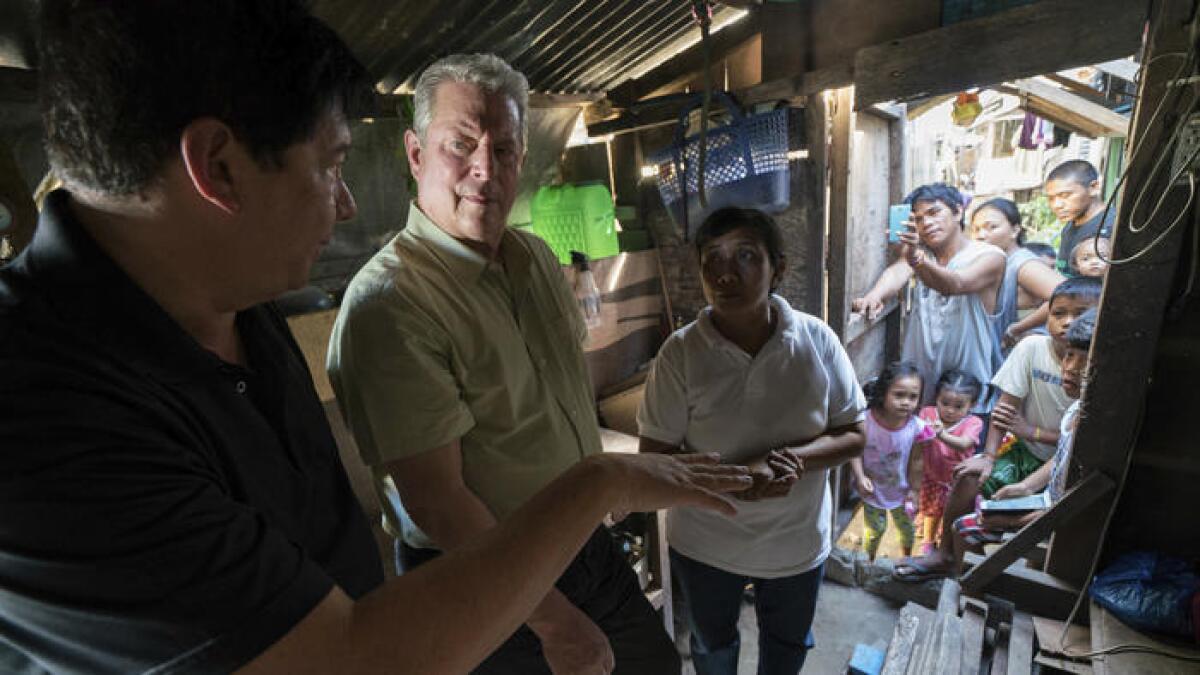
Last summer, organizers of the Sundance Film Festival, meeting in Los Angeles, were stumped. Where had all the movies about the destruction of the planet gone?
âAfter a flurry of documentaries like âThe Coveâ and âBlackfish,â weâd seen a decline in films about the climate over the last few years,â recalled John Cooper, the festivalâs director. âMaybe nobody cared anymore. Climate change seemed to have slipped out of the public awareness a little bit, and it wasnât helped at all during the election process, because nobody was talking about it much then, either.â
Even this weekâs news that 2016 was the hottest year since 1880 â the third record-breaking year in a row â didnât get much traction. In this moment when the incoming president of the United States has questioned whether climate change is real, documentaries about the environment are a hard sell at movie theaters. They often urge filmgoers to make real-life changes: Stop eating so much steak, invest in solar panels, drive electric cars. . . .
More and more films dealing with the environment have come to us. Theyâve created their own category.
— Robert Redford, on Sundanceâs New Climate series
Despite the seeming drop in interest, Sundance organizers â including founder Robert Redford, himself an outspoken environmentalist â are convinced thereâs an audience for these documentaries and decided to devote an entire program to âenvironmental change and conservationâ at this yearâs festival.
Most prominent in the festivalâs New Climate series is Thursday eveningâs premiere of âAn Inconvenient Sequel,â the follow-up to the original Gore documentary that debuted at Sundance 11 years ago.
Sundance documentary âIcarus,â about Russian doping, could light another match under U.S.-Russia relations
When he went public with doping allegations last May, Russian whistle-blowerâ Grigory Rodchenkov told a remarkable story.
A long-serving chief of the countryâs anti-doping program, Rodchenkov confessed that, out of the same lab designed to nab cheaters, heâd also secretly been running a state-sponsored doping program. During the 2014 Winter Games in Sochi, Rodchenkov said that at the behest of Vladimir Putinâs government he had used that watchdog lab to provide dozens of athletes with banned substances â then supervised an elaborate operation to swipe out their urine samples. Many went on to win medals.
The account triggered a massive investigation by the World Anti-Doping Agency and has caused a furor in the international community (and a Russian PR counter-strike).
But Rodchenkovâs allegations would likely have never come to light if not for the unexpected involvement of Bryan Fogel, a first-time documentary filmmaker with no previous connection to doping or the Olympics.
History and comedy collide with Aubrey Plaza, Alison Brie and Dave Franco in Sundance premiere âThe Little Hoursâ
A title card announces the year as 1347 as a young woman in a nunâs habit leads a donkey across an idyllic countryside. She passes through one verdant glen after another on her way back to a small convent, and when she and her sister nuns eventually speak, it is in a pitched contemporary upspeak. Contemporary to now, not then.
Writer-director Jeff Baenaâs âThe Little Hoursâ is making its world premiere Thursday as part of the Midnight section at the 2017 Sundance Film Festival. Adapted from stories drawn from Giovanni Boccaccioâs medieval book âThe Decameron,â the film draws humor from the tension between its setting and the way the characters speak and interact as a story unfolds about a fugitive servant (Dave Franco) who pretends to be a deaf-mute to be taken in by a convent that includes three young nuns (Aubrey Plaza, Alison Brie, Kate Micucci), each dealing with personal crises of their own.
The film has quite a cast, as it also includes John C. Reilly, Molly Shannon, Nick Offerman, Adam Pally, Fred Armisen, Paul Reiser, Lauren Weedman, Jemima Kirk and Paul Weitz.
Why are Sundance alums Nate Parker and Casey Affleck treated differently when it comes to sexual-misconduct allegations?
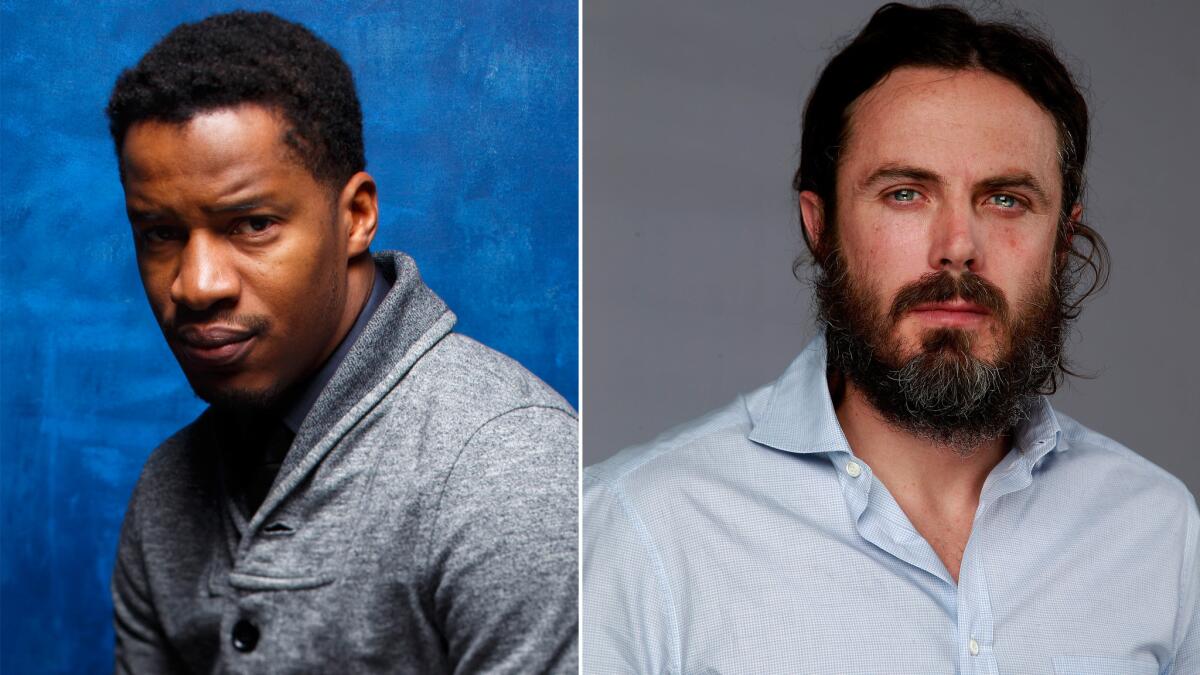
On the night of the Golden Globes â as he had for many of the awards season trophy ceremonies â actor Casey Affleck bounded onto the stage to accept his award as best lead actor in a drama for his turn in âManchester by the Sea.â Meanwhile, Nate Parker, the multi-hyphenate lead of the Nat Turner slave revolt flick, âThe Birth of a Nation,â wasnât anywhere to be seen on the show that, 12 months prior, he was considered all but a lock to be a fixture of.
The 2017 awards season was supposed to belong to Parker and Affleck, as both of their films had stormed out of Sundance a year ago this week to positive reception with glory in their sights.
But the experiences of these two men have been vastly different. In the time since âManchesterâsâ and âBirthâsâ Sundance premieres, past cases involving both actors and allegations with sexual impropriety came to light.
Sundance is a place to sell things, and fortunately that includes good films

On the schedule are no fewer than six dramas set in Brooklyn, three documentaries involving Syria, an entire section devoted to climate change, even a documentary modestly titled âTrumped: Inside the Greatest Political Upset of All Time.â
Let it not be said that the Sundance Film Festival neglects the trending hot spots of todayâs world.
But you already knew that. Thatâs why youâre either headed for the event beginning Thursday night in Park City, Utah, or at least planning to read all about it. Because where the independent film world is concerned, whether weâre talking âBrooklynâ or âReservoir Dogs,â Sundance is the place where the future happens first.
That renown translates into economic as well as aesthetic success, with Sundance reporting that last yearâs festival attracted 46,600 visitors and âgenerated $143.3 million in economic activity for the state of Utah.â Which is not half bad.
All that prosperity means that Sundance has become a bit like Rickâs Cafe in âCasablanca,â the place where everyone with anything to sell or promote shows up. The festival has a full 23 high-profile official sponsors this year, from Acura to Adobe to American Airlines, not to mention unofficial commercial presences from Kia to Kickstarter.
Follow the L.A. Times reporters on the ground at Sundance
The L.A. Times is on the ground at Sundance. Follow along on Twitter here.
With âMenashe,â director Joshua Weinstein seeks to get behind the veil of New Yorkâs Hasidim
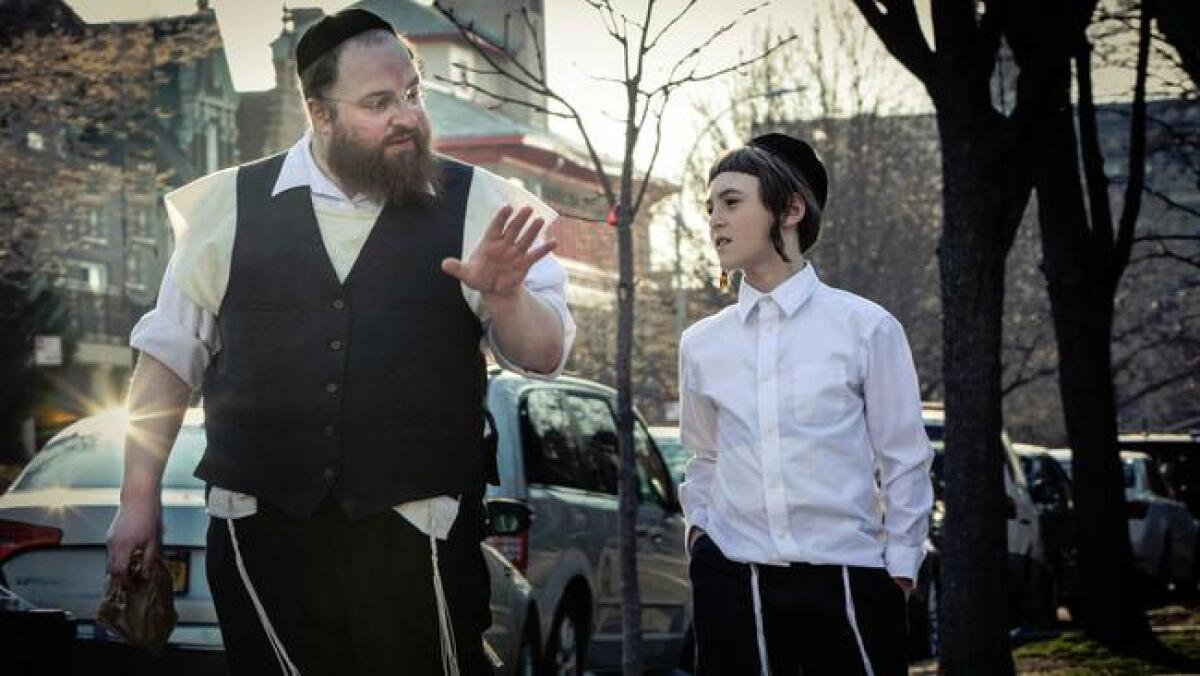
The secular filmmaker Joshua Weinstein stood on a helter-skelter corner in this ultra-Orthodox Jewish neighborhood next to shops selling conservative fashions and Internet-disabled smartphones, and pondered his recent guerrilla shoot.
âThe strangest casting moment, let me think about that,â the director said, tilting back his head. âIt might be all the times I sat through an hour of evening prayers because I happened to be talking to a potential actor and they needed a 10th man for a minyan [a prayer quorum]. Or maybe it was when I accompanied the rabbi to the mikveh [Jewish ritual bath].â
He paused thoughtfully. âItâs hard enough to cast your independent film when youâre not submerged without clothes in steamy waters.â
Weinstein experienced a series of colorful moments to craft the low-key authenticity of âMenashe,â his heartfelt gem of a scripted drama that will premiere Monday at the Sundance Film Festival in the upstart Next section. At a time when television series such as âBreaking Amishâ aim to shed light on cloistered religious communities, âMenasheâ harbors similar goals in a fresh context: It seeks to get behind the veil of New Yorkâs Hasidim, people generally depicted in pop culture as enigmatic props, when theyâre even seen at all.
First look at âGolden Exitsâ with Jason Schwartzman, ChloĂŤ Sevigny and Beastie Boysâ Adam Horovitz
Writer-director Alex Ross Perry steps into the spotlight of the festivalâs U.S. Dramatic Competition for the first time this year with âGolden Exits,â with a cast that includes Jason Schwartzman, ChloĂŤ Sevigny, Mary-Louise Parker, Analeigh Tipton and Lily Rabe. Beastie Boys member Adam Horovitz also stars, continuing his recent return to movie acting after his appearance in Noah Baumbachâs âWhile Weâre Young.â
FIRST LOOK: A series of stills from âGolden Exits,â with extended captions written by Perry.
Will this be the year a film that premiered at Sundance takes home the Oscar?
No movie that has premiered at the Sundance Film Festival has ever gone on to win the Oscar for best picture.
Could this be the year? âManchester by the Seaâ is considered a strong contender for a nomination.
The Park City, Utah, festival has boasted its share of Oscar winners over the decades â Cher (âMoonstruck,â not a premiere, but it did play shortly after opening), Kevin Spacey (âThe Usual Suspectsâ) and MoâNique (âPreciousâ) are among the actors who have parlayed Sundance success into Academy acclaim.
The best picture prize remains elusive, though. Possibly, itâs too challenging to maintain interest and buzz between a January debut and a ceremony that hands out its awards 13 months later.
Returning filmmakers make waves in Sundanceâs Premieres, Documentary Premieres and Midnight sections
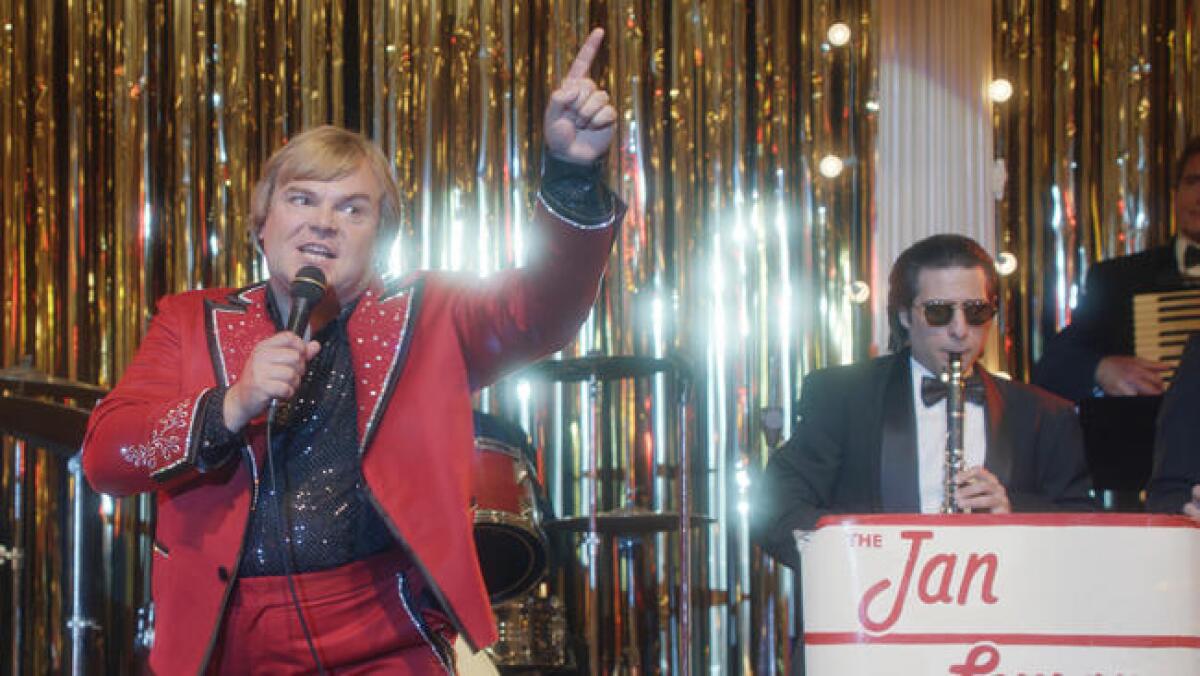
The Sundance Film Festival brought the continued rollout of its 2017 program into sharper focus Monday with the announcement of multiple sections, including Premieres, Documentary Premieres, Midnight, Spotlight and Special Events.
Many of the most anticipated titles in the festival come from the Premieres section, which also generates some of the highest-profile distribution sales. Titles from last yearâs Premieres selection included âManchester By the Sea,â âCertain Women,â âHunt for the Wilderpeople,â âIndignation,â âLittle Men,â âLove & Friendshipâ and âSing Street.â
This year the section includes many returning Sundance filmmakers, including Miguel Arteta and Mike White with âBeatriz At Dinner,â Ry Russo-Young with âBefore I Fall,â Michael Showalter with âThe Big Sick,â Luca Guadagnino with âCall Me by Your Name,â Charlie McDowell with âThe Discovery,â Jim Strouse with âThe Incredible Jessica James,â Mark Pellington with âThe Last Word,â Michael Almereyda with âMarjorie Prime,â Dee Rees with âMudbound,â Maya Forbes with âThe Polka Kingâ and Craig Johnson with âWilson.â
Also in the section will be Alethea Jonesâ âFun Mom Dinner,â Julian Rosefeldtâs âManifesto,â Danny Strongâs âRebel In the Rye,â Mark Palanskyâs âRememory,â Shawn Christensenâs âSidney Hall,â Andrew Dosunmuâs âWhere is Kyra?â and Taylor Sheridanâs âWind River.â
Sundance may take on a more political feel as Trumpâs inauguration and filmsâ subject matter affect the festival
The Sundance Film Festival has long been a bastion of values of inclusion and diversity that have suddenly become deeply politicized following the recent election cycle. What often seemed essentially harmless, platitudinous stances may suddenly take on an oppositional, even radical, dimension.
The festival has begun to roll out the programming announcements for its 2017 edition with the release Wednesday of an initial slate of 66 films for the U.S. Competition, World Competition and Next sections.
This yearâs festival, which takes place Jan. 19-29, overlaps with two events from beyond its home state of Utah that may nevertheless have an impact on it â the presidential inauguration and the announcement of this yearâs Oscar nominations.
The festivalâs programming team was already deep in the throes of pulling together the festival long before the recent presidential election results, but they expect the mood of the festival may now be different than what they were initially anticipating.
